- Topics ›
- Cycling ›

Tour de France: Too Fast To Be Clean?
Tour de france.
Denmark's Jonas Vingegaard claimed his second Tour de France victory on Sunday, completing the grueling 3-week, 3,401 kilometer competition with an average speed of 41.12 km/h (25.55 mph). Even before officially getting his hands on the famous maillot jaune mascot though, Vingegaard was facing tough questions regarding his pace. How was he going so fast? How was it possible to be over seven minutes ahead of a cyclist of Pogačar's caliber? Some reporters even explicitly asking: "Are you cheating?".
Vingegaard's response? In a post-stage 17 press conference, the Dane proclaimed: "For me, it’s hard to tell what more you can say. I guess, I understand that it’s hard to trust in cycling with the past there has been. But I think nowadays everyone is different than they were 20 years ago. And I can tell from my heart that I don’t take anything. I don’t take anything I would not give to my daughter, and I would definitely not give her any drugs.”
Assuming he is indeed clean, it is unfortunate for this year's victor that it has become the norm, given cycling's deservedly bad reputation, for exceptional performances to raise suspicions. As this chart shows, the Tour de France has not slowed down since the doping-infested years of the early 2000s. Whether that's due to super-fast carbon bikes, favorable routing or the use of performance-enhancing substances is a question the sport is not yet fully able to answer.
Description
This chart shows the average speed of Tour de France winners since 1903, by decade (in kilometers per hour).
Can I integrate infographics into my blog or website?
Yes, Statista allows the easy integration of many infographics on other websites. Simply copy the HTML code that is shown for the relevant statistic in order to integrate it. Our standard is 660 pixels, but you can customize how the statistic is displayed to suit your site by setting the width and the display size. Please note that the code must be integrated into the HTML code (not only the text) for WordPress pages and other CMS sites.
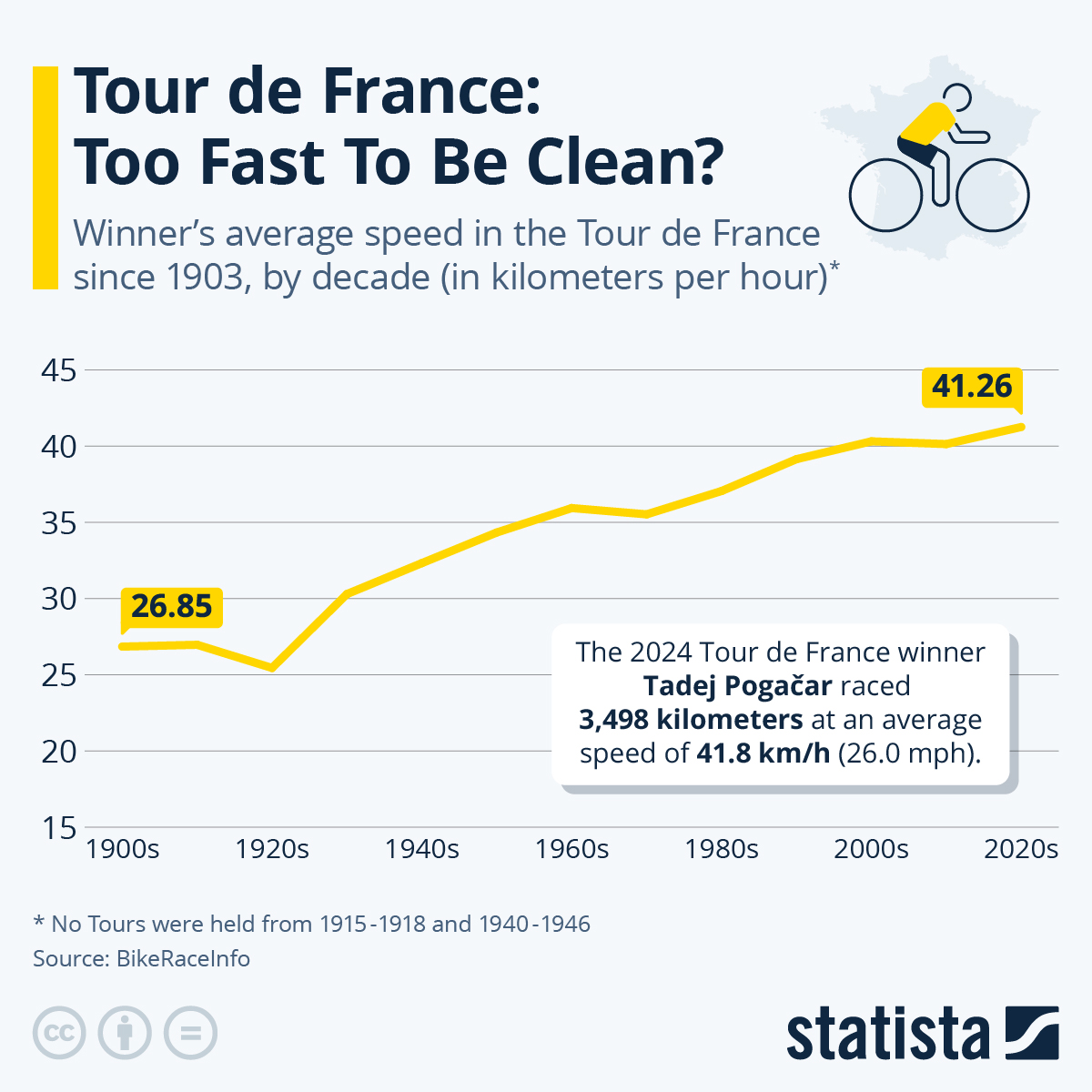
Infographic Newsletter
Statista offers daily infographics about trending topics, covering: Economy & Finance , Politics & Society , Tech & Media , Health & Environment , Consumer , Sports and many more.
Related Infographics
The countries dominating the tour de france, has pro cycling cleaned up its act, where cycling has an uphill battle for fans, americans lose interest in post-armstrong tour de france, fortnite world champion bags $3 million prize, tour de france: the 20-year fight against doping, how esport prize purses compare to traditional sports, can the tour de france shake its tarnished past.
- Who may use the "Chart of the Day"? The Statista "Chart of the Day", made available under the Creative Commons License CC BY-ND 3.0, may be used and displayed without charge by all commercial and non-commercial websites. Use is, however, only permitted with proper attribution to Statista. When publishing one of these graphics, please include a backlink to the respective infographic URL. More Information
- Which topics are covered by the "Chart of the Day"? The Statista "Chart of the Day" currently focuses on two sectors: "Media and Technology", updated daily and featuring the latest statistics from the media, internet, telecommunications and consumer electronics industries; and "Economy and Society", which current data from the United States and around the world relating to economic and political issues as well as sports and entertainment.
- Does Statista also create infographics in a customized design? For individual content and infographics in your Corporate Design, please visit our agency website www.statista.design
Any more questions?
Get in touch with us quickly and easily. we are happy to help.
Feel free to contact us anytime using our contact form or visit our FAQ page .
Statista Content & Design
Need infographics, animated videos, presentations, data research or social media charts?
More Information
The Statista Infographic Newsletter
Receive a new up-to-date issue every day for free.
- Our infographics team prepares current information in a clear and understandable format
- Relevant facts covering media, economy, e-commerce, and FMCG topics
- Use our newsletter overview to manage the topics that you have subscribed to
The average speed reached by the winners of the Tour de France increased by 53.9% since the first race in 1903 through 2016. This means an average speed increase rate of 0.42% each Tour.
The upward trend reached its peak at 41.65 km/h with the 7th consecutive win by the US cyclist Lance Armstrong in 2005. Average speeds fell since then until 2010, in spite of the participation of the same fast riders, which suggests more stringent anti-doping regulations and controls (see areppim's insight ). Since 2010, the average speed of the Tour winner resumed its ascending trend, approaching the long-term linear trend (red line in the chart), before slowing down a bit in 2015 and especially in 2016.
One cannot avoid suspecting the doings of illegal sports medical practices to be responsible for such high level performances. Indeed, the 2015 Tour had one rider excluded for positive control on drugs, and hot controversy surrounded the Tour winner's allegedly extraordinary performance. The doping affairs that tarnished the Tour champions' reputations since 1996 cast a dubious halo on the popular sports event. But, for that matter, other sports are not immune: tennis, soccer, running, practically all sport disciplines have been subject to on-going controversy after whistle blowers alerted to a variety of doping practices.
Sources: Le Tour de France
Dwars door het Hageland (Exterioo Cyclin
Brussels cycling classic, criterium du dauphine, uci mtb eliminator world cup - leuven, tour of britain (women), uci mtb leogang austria, tour de suisse, elfstedenronde (exterioo cycling cup) -, baloise belgium tour, uci mtb val di sole italy, tour of slovenie, tour de suisse women, uci mtb crans montana switzerland, tour de l'eurometropole, uci mtb haute savoie france, how does your average bike speed compare with tour de france pros, how does your average bike speed stack up with the fastest riders in the world.
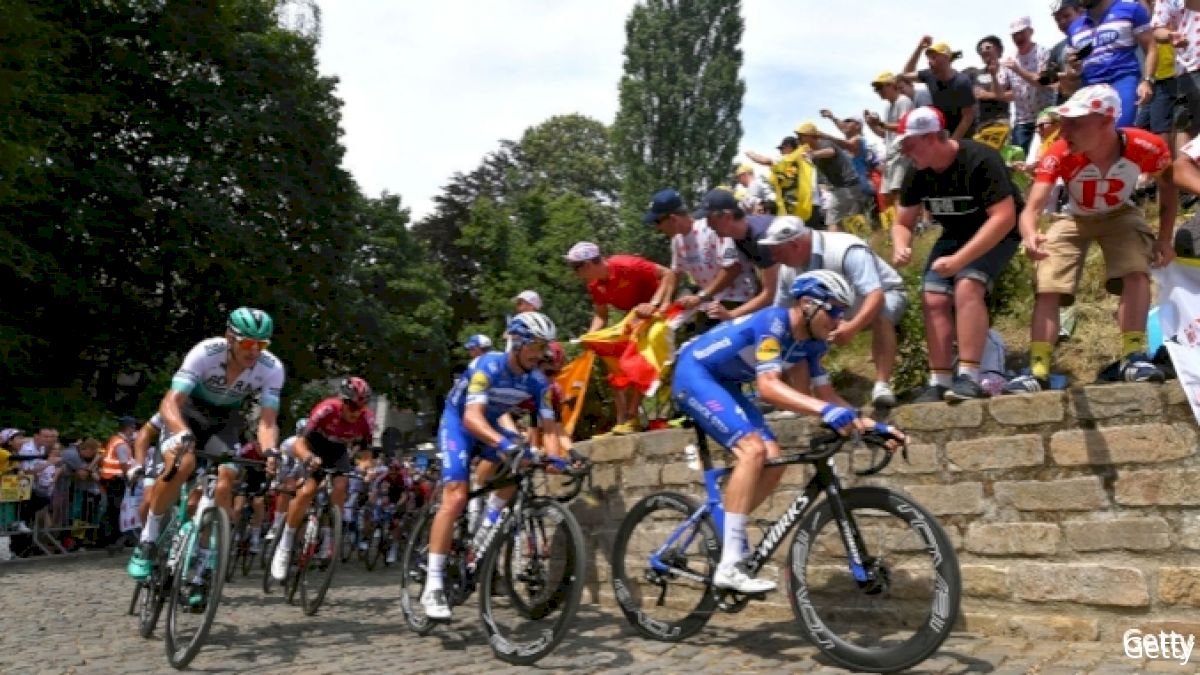
The Tour de France is the pinnacle when it comes to cycling competitions. It is one of the most-watched sporting events in the world and showcases some of the fittest athletes on the planet. The pure athleticism that is on display during this 21-day, 2,200-mile race is inspiring, enlivening, and these cyclists seem somewhat superhuman.
You might be asking yourself, “So how fast are they even going?” Or, “How do I compare to these athletes?” Luckily for you, with today’s technology, various metrics can be tracked during these cycling competitions, so everyone can compare their statistics to those of the pros. As with any metric, the speeds at which the Tour de France pros cycle will vary, but there are averages that have been tracked for decades now.
Here are a few of the average speeds for the professional cyclists that race in the Tour de France:
Average Speed on Flat Ground: 25-28 mph
The average speed for professional cyclists while traversing on flat terrain is 25-28 mph. The average amateur cyclist travels about 17-18 mph while on flat ground. For many pro athletes racing in the Tour de France, being able to maintain a fast speed on flat terrain allows them to simply stay competitive with the other athletes. It is in the climbing portions of the Tour de France that the best gain separation from the peloton.
Average Cobblestone Speed: 22-24 mph
In every Tour de France, there is at least one section of cobblestone that the cyclists must ride through -- sometimes, though, this is replaced with a stretch of gravel pavement. The small grooves in the road and uneven terrain can be difficult to tread, but these athletes still average an impressive 22-24 mph.
Average Speed Climbing: 12.8 mph
In the 2019 Tour de France, the athletes averaged 12.8 mph while trudging through the infamous climbs of the race. These athletes are literally cycling up and through the Pyrenees and Alps during this phase of the Tour de France, making for some of the most memorable moments of the Tour.
Fastest Recorded Speed: 63.1 mph
The fastest recorded speed of the Tour de France came from German Nils Politt while descending Col de Vars during stage 18 of the race. This was the second of four climbs in the stage, and Politt was the first-ever rider to break the 100 km/hr barrier by traveling at a speed of 101.5 km.hr on this descent.
Jonas Vingegaard Tour de France 2022 | Average Speed: 26.11
Jonas Vingegaard won his first Tour de France in 2022 on his second time participating in the tour. He spent the majority of the race trading leads back and forth with fan-favorite, Tadej Podacar. Vangegaard pushed through stage 19 and crossed the finish line 2 minutes and 43-second ahead of Podačar. After a total of 79 hours, 33 minutes, and 20 seconds on the bike, Jonas Vangegaard became the first Danish Tour de France champion since 1996
Tadej Pogačar Tour de France 2021 | Average Speed: 25.5 mph
Tadej Podačar was only 22 years old when he earned his second consecutive win at the Tour de France. Podačar made the victory look easy when he also earned a polka-dot jersey for top climber and white jersey for best young cyclist. His quick rise to first place had people consider him one of the most exceptional young cyclists the Tour de France had seen in years. He finished the race in 82 hours, 56 minutes and 36 seconds.
Tadej Pogačar Tour de France 2020 | Average Speed: 24.77
Tadej Podačar for UAE Team Emirates shocked fans at his 2020 Tour de France debut. At 21 years old he managed to break all expectations and snatch a victory from Primoz Roglic, who was expected to cruise to a first-place finish. In the final stage of the tour, Podačar sped through a 57-second deficit and earned his first yellow jersey, becoming the youngest Tour de France Winner in 111 years.
Egan Bernal Tour de France 2019 | Average Speed: 25.2 mph
The 2019 Tour de France winner, Egan Bernal of Colombia, averaged 25.2 mph. He is the first Latin American to ever win the Tour de France. At age 22, he is also the youngest Tour de France winner in modern racing history. He finished the 2,091.4 mile race in exactly 82 hours and 57 minutes.
While not every cyclist has aspirations of ever racing in the Tour de France, having these metrics is a fun way for everyday cyclists to compare themselves to the superhuman riders that conquer the most famous cycling race in the world.
- Feature Story
Related Content
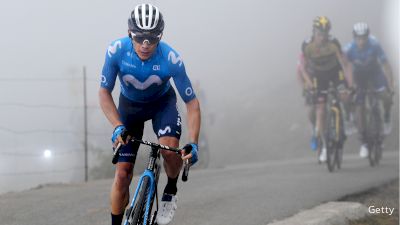
May 30, 2024
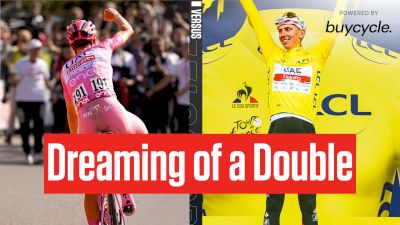
May 29, 2024
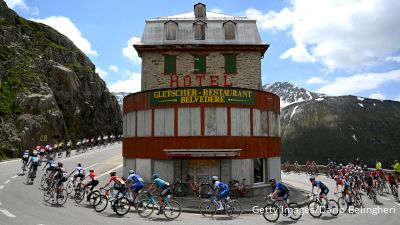
May 28, 2024
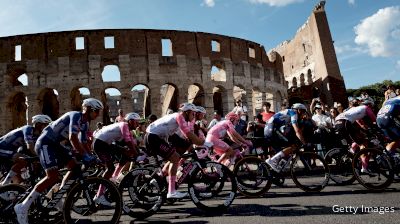
May 27, 2024

May 26, 2024

Tour de France average speed: How fast are riders at the Tour?
How fast do professional riders do the lap around France?
- Sign up to our newsletter Newsletter
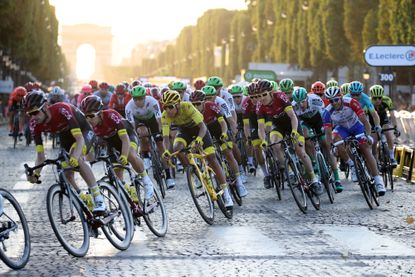
The general trend at the Tour de France , since its start in 1903, is that the speed of the riders is going up.
This has happened due to multiple reasons. Mainly it is due to the quality of kit getting better and better every year as science and technology become more and more involved in the sport.
>>> Tour de France facts: stats from the world’s biggest bike race
Bikes and kit becoming as aerodynamic as it is possible to be along with new materials that are faster through the air than human skin itself have changed bike racing hugely in recent years.
On the other side of this, some of the average speeds in past Tours have potentially been due to leading riders having a little extra help than just aero kit and fast rolling tyres.
You won't be surprised to know that the fastest Tour de France on record belongs to a certain Lance Armstrong .
The American former rider had all seven of his Tour titles taken away from him after it was exposed that had doped during all his victories.
Get The Leadout Newsletter
The latest race content, interviews, features, reviews and expert buying guides, direct to your inbox!
He completed the 2005 race with an amazing average speed of 41.7km/h, which is over one km/h faster than the modern day riders who ride with much faster kit.
>>> Tour de France bikes: Who’s riding what in 2020?
On the flip side, the slowest ever Tour was in 1919, after World War One. The race was won by Belgian Firmin Lambot with an average speed of 24.1km/h.
In the last 10 years the pace hasn't differed too much, staying around the 39 - 40km/h mark, but it does look to be steadily increasing as the technology and training means that riders can go faster than ever before.
The fastest ride in the last 10 years goes to Chris Froome 's last overall victory in 2017.
The race only had three summit finishes and multiple flatter stages and a lot of long descents along with two time trials, which explains the higher than normal speed.
The last two editions of the race have both been around 200km shorter than the 2017 race.
Tour de France average speed (last 11 editions)
2009, Alberto Contador : 40.03km/h
2010, Andy Schleck : 39.59km/h
2011, Cadel Evans : 39.79km/h
2012, Bradley Wiggins : 39.93km/h
2013, Chris Froome: 40.68km/h
2014, Vincenzo Nibali : 40.68km/h
2015, Chris Froome: 39.64km/h
2016, Chris Froome: 39.63km/h
2017, Chris Froome: 41.00km/h
2018, Geraint Thomas : 40.23km/h
2019, Egan Bernal: 40.58km/h
Thank you for reading 20 articles this month* Join now for unlimited access
Enjoy your first month for just £1 / $1 / €1
*Read 5 free articles per month without a subscription
Join now for unlimited access
Try first month for just £1 / $1 / €1
Hi, I'm one of Cycling Weekly's content writers for the web team responsible for writing stories on racing, tech, updating evergreen pages as well as the weekly email newsletter. Proud Yorkshireman from the UK's answer to Flanders, Calderdale, go check out the cobbled climbs!
I started watching cycling back in 2010, before all the hype around London 2012 and Bradley Wiggins at the Tour de France. In fact, it was Alberto Contador and Andy Schleck's battle in the fog up the Tourmalet on stage 17 of the Tour de France.
It took me a few more years to get into the journalism side of things, but I had a good idea I wanted to get into cycling journalism by the end of year nine at school and started doing voluntary work soon after. This got me a chance to go to the London Six Days, Tour de Yorkshire and the Tour of Britain to name a few before eventually joining Eurosport's online team while I was at uni, where I studied journalism. Eurosport gave me the opportunity to work at the world championships in Harrogate back in the awful weather.
After various bar jobs, I managed to get my way into Cycling Weekly in late February of 2020 where I mostly write about racing and everything around that as it's what I specialise in but don't be surprised to see my name on other news stories.
When not writing stories for the site, I don't really switch off my cycling side as I watch every race that is televised as well as being a rider myself and a regular user of the game Pro Cycling Manager. Maybe too regular.
My bike is a well used Specialized Tarmac SL4 when out on my local roads back in West Yorkshire as well as in northern Hampshire with the hills and mountains being my preferred terrain.
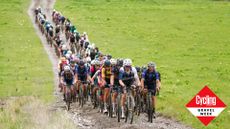
WorldTour roadies, track world champions and MTB Olympians joining thousands of participants, Unbound Gravel has grown to be the world's biggest gravel race.
By Anne-Marije Rook Published 27 May 24
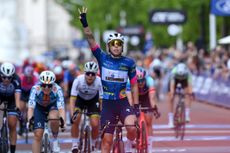
SD Worx-Protime rider completes clean sweep to win three-day WorldTour race
By Tom Davidson Published 27 May 24
Useful links
- Tour de France
- Giro d'Italia
- Vuelta a España
Buyer's Guides
- Best road bikes
- Best gravel bikes
- Best smart turbo trainers
- Best cycling computers
- Editor's Choice
- Bike Reviews
- Component Reviews
- Clothing Reviews
- Contact Future's experts
- Terms and conditions
- Privacy policy
- Cookies policy
- Advertise with us
Cycling Weekly is part of Future plc, an international media group and leading digital publisher. Visit our corporate site . © Future Publishing Limited Quay House, The Ambury, Bath BA1 1UA. All rights reserved. England and Wales company registration number 2008885.
- Race Previews
- Race Reports
- Tips & Reviews
- Race Photos
The Evolution of Speed in the Tour de France
Mathew Mitchell
- Published on June 23, 2023
- in Men's Cycling

One of the most intriguing aspects of the Tour de France, beyond the dazzling victories and dramatic rivalries, is the evolution of the race’s average speed. Throughout its history, a multitude of factors have contributed to significant changes in the pace of the peloton, from technological advancements to race strategies. Let’s embark on a journey through the annals of the Tour to examine this transformation.
Table of Contents
The early editions
The early years of the Tour de France were characterised by lengthy stages often exceeding 400 km, rudimentary bicycles, and rugged roads, which resulted in a slow pace compared to today’s standards. Maurice Garin, the winner of the first Tour in 1903, achieved an average speed of 25.7 km/h, or approximately 16 mph. This may seem leisurely in the modern era, but given the conditions at the time, it was an impressive feat.
From these humble beginnings, the Tour’s average speed gradually increased as a result of several key factors. First and foremost, technological advancements played a significant role. Innovations such as derailleur gears, lighter frames made from aluminium or carbon fibre, aerodynamic clothing, and improvements in nutrition and training regimes all contributed to an upward trend in the peloton’s pace.
Fastest editions of the Tour de France
Among the fastest five editions of the Tour de France, the 2005 edition holds the record, with an astonishing average speed of 41.7 km/h, or approximately 25.9 mph, achieved by Lance Armstrong. However, it’s worth noting that Armstrong was later stripped of his titles due to doping . 2003, 2015, 2017, and 2019 Tours are also among the fastest, with average speeds ranging from 40.7 km/h (25.3 mph) to 40.9 km/h (25.4 mph). 2022’s Tour de France , won by Jonas Vingegaard, saw a new record set with an average speed of 42.03 km/h (26.1mph). That’s now a jump in the Tour de France average mph of 10mph since the inaugural edition in 1903.
Slowest editions of the Tour de France
Contrastingly, the slowest Tours de France typically date back to the early 20th century, primarily due to the aforementioned factors of longer stages, simpler bicycles, and challenging road conditions. The five slowest Tours were the editions from 1919, 1922, 1923, 1924, and 1926, with average speeds ranging from 24.1 km/h (15 mph) to 24.3 km/h (15.1 mph).

How and why the average speed has changed over time
It’s crucial to mention that strategies have also evolved significantly, with modern cycling teams employing more sophisticated tactics, optimising rider roles, and using advanced data analysis to gain an edge. The increased professionalism in the sport has contributed to the upward trend in speed.
Looking forward, it’s exciting to contemplate what could further increase the Tour de France’s average speed. Advancements in bicycle technology continue at a rapid pace, with continuous improvements in weight, aerodynamics, and power transfer. Similarly, cutting-edge training techniques, informed by genetics and sophisticated performance data, will continue to enable cyclists to push the boundaries of human endurance and speed.
Furthermore, improvements in road surfaces, planning of race routes, and even changes in race rules could have an impact. For example, more downhill finishes could raise the overall average speed, although the safety of riders would always be paramount.
In conclusion, the evolution of speed in the Tour de France is a fascinating aspect of this iconic race. From the early Tours, characterised by their gruelling pace and hardy riders, to the high-speed, technology-driven spectacle of today, the race continues to captivate and surprise. As we look to the future, we can expect the boundaries of speed, just like the race itself, to be continuously challenged and redefined.
Related Posts

Silke Smulders claims first pro victory in Vuelta Ciclista Andalucia Women

Dutch Federation Announces Olympic Road Cycling Team for Paris 2024

Miguel Ángel López banned for four years due to doping


What’s the Average Speed of Tour de France Riders in MPH?
How fast do pro cyclists ride what's a pro rider's average speed.
16 July, 2015 Bek Ask Alpha Ninja

Reese: “I’ve been watching the pro cyclists in the Tour de France this year, and I’ve heard some speeds thrown out here and there, but I can’t seem to figure out how fast they’re really going. What is a rider’s average speed in miles per hour?”
This is a popular question, Reese. In fact, you’re one of about 30 people to ask us this since the beginning of this year’s Tour de France. While there’s not a simple answer to your question, we can break it down into a few generalities here.
In 2015, Rohan Dennis broke a record for the fastest average speed in a time trial at 34.5 miles per hour (55.446kmph). As a rule, the pack can hammer on flats at around 26-29mph. That certainly varies, and you’ll often hear Paul and Phil talk about how the peloton is moving at well over 30mph.
When the pack hits a sprint finish, it can often stamp out speeds of over 40mph. In fact, Andre Greipel’s uploaded Strava data from Stage 5 showed that he had to hit 43.5mph (70km) in order to win.

Yesterday, Dan Martin was reported as climbing the Pyrenees at 12mph. THE PYRENEES. Based on my research, it seems that most climbs are done at around 12-14mph–and we’re talking about some serious gradients and after several hours in the saddle for days on end. Of course, many of us could probably climb pretty well with all those hours put in. Except for we sprinters, amiright?
WINNING SPEED
Over the last several years, the winner of the tour has posted an overall average speed of right around 25mph (40kmph)–but that encompasses an entire tour. Uphill, downhill, time trial, flatland, it’s all averaged at 25mph. A little faster than us. A little.
But that’s us. How do you stack up?
- average speed of pro riders
- questions and lists
- tour de france
12 Comments
I have held 32 mph for a couple miles aided by a tailwind.
Yesterday, Cavendish posted a photo of his Garmin showing a max speed of nearly 102 kph. He said he reached that speed descending Tormelet. My highest is 54.5 mph.
Geez! I guess I am not as fast as I thought: avg 20 mph. RobinsonBball.com
It probably helps to have a couple dozen other riders helping to drag you along, huh?
A crit can easily average 28 mph. No hills.
Good amateurs maybe average 21MPH on the flat.
Chris Froome probably averages 16MPH riding up a category 2 climb.
I average 14+ On solo rides. Unless, of course, there is another rider in my peripheral. Just keep them looking ass and elbows, I haven’t had the very closest outside of the block.
Upon review, that last sentence didn’t dictate right… Stay off my wheel motherf-ers
With an average speed of 14mph, no serious cyclist is going to be on your wheel. They are going to leave you in the dust…
Can anyone please tell us what the approximate number of pedals (each leg) were per kilometer for Chris Froome and the group who completed the 2017 TdF? We are trying to get an estimate of the number of pedals (per leg) for the full 3.500 km. Eg if the pedals per km was, say, 1.000 then the total number of pedals was 3.500.000. We cannot believe there is any accurate record of the actual figures. Thank you
Simple math can give you that. Take Froome’s average cadence and multiply it by his total hours ridden to get the units, you can also do the inverse with speed divided by distance to get the time.
i.e. if the total distance of race ‘x’ was 2500 km and he averaged 50km/h we know it took him 50 hours exactly to finish the race and lets say his average cadence was 100 RPMs – then we can conclude 50x60x100 = 300,000 rotations to finish the race. From that and the distance, along with all the other data – you can basically extrapolate F1 type numbers on the power, wattage, gearing, etc. etc. To say ‘We cannot believe there is any accurate record of the actual figures’ is absurd – they know the temperature of the air, ground, psi in both tires, L/R balance of power, coefficient of drag of the bike and the person, head and crosswinds, etc. etc.
Heck, I am super amatuer and have a garmin bike computer with more data than I know what to do with.
48 kph for 30 min on stationary bike – age 59 – trying to lose weight
1 Trackback / Pingback
- How to select a bicycle according to your needs and budget? - Page 35
Leave a Reply Cancel reply
Your email address will not be published.
Sign me up to get new articles via email!
Notify me of follow-up comments by email.
This site uses Akismet to reduce spam. Learn how your comment data is processed .
Copyright © 2019 | SLO Cyclist
OUTSIDE FESTIVAL JUNE 1-2
Don't miss Thundercat + Fleet Foxes, adventure films, experiences, and more!
GET TICKETS
Powered by Outside
Tour de France winners and their average speeds
2011 3431km (5489.6m),180 starters, 167 finishers (93%); winner: cadel evans, 34, avg: 39.8 kph (24.9 mph) 2010 3642km (5827.2m),180 starters, 170 finishers (94%); winner: alberto contador, 27, avg: 39.6 kph (24.7 mph) 2009 3459km (5534.4m),180 starters, 156 finishers (87%); winner: alberto contador, 26, avg: 40.3 kph (25.2 mph) 2008 3559km (5694.4m),180 starters, 145 finishers (81%); winner: carlos sastre, 33, avg: 40.5 kph (25.3 mph) 2007 3570km (5712m),189 starters, 141 finishers (75%); winner: alberto contador, 24, avg: 39.2 kph (24.5 mph).
Heading out the door? Read this article on the new Outside+ app available now on iOS devices for members! >","name":"in-content-cta","type":"link"}}'>Download the app .
- 2011 3431km, (2144m); 198 starters, 167 finishers (84%); Winner: Cadel EVANS, 34, avg: 39.8 kph (24.9 mph)
- 2010 3642km, (2276m); 197 starters, 170 finishers (86%); Winner: Alberto CONTADOR, 27, avg: 39.6 kph (24.7 mph)
- 2009 3459km, (2162m); 180 starters, 156 finishers (87%); Winner: Alberto CONTADOR, 26, avg: 40.3 kph (25.2 mph)
- 2008 3559km, (2224m); 180 starters, 145 finishers (81%); Winner: Carlos SASTRE, 33, avg: 40.5 kph (25.3 mph)
- 2007 3570km, (2231m); 189 starters, 141 finishers (75%); Winner: Alberto CONTADOR, 24, avg: 39.2 kph (24.5 mph)
- 2006 3657km, (2286m); 176 starters, 139 finishers (79%); Winner: Oscar PEREIRO, 30, avg: 40.8 kph (25.5 mph)
- 2005 3593km, (2246m); 189 starters, 155 finishers (82%); Winner: Lance ARMSTRONG, 34, avg: 41.7 kph (26 mph)
- 2004 3391km, (2119m); 188 starters, 147 finishers (78%); Winner: Lance ARMSTRONG, 33, avg: 40.6 kph (25.3 mph)
- 2003 3427km, (2142m); 198 starters, 147 finishers (74%); Winner: Lance ARMSTRONG, 32, avg: 40.9 kph (25.6 mph)
- 2002 3278km, (2049m); 189 starters, 153 finishers (81%); Winner: Lance ARMSTRONG, 31, avg: 39.9 kph (25 mph)
- 2001 3458km, (2161m); 189 starters, 144 finishers (76%); Winner: Lance ARMSTRONG, 30, avg: 40.1 kph (25 mph)
- 2000 3662km, (2289m); 177 starters, 128 finishers (72%); Winner: Lance ARMSTRONG, 29, avg: 39.6 kph (24.7 mph)
- 1999 3870km, (2419m); 180 starters, 141 finishers (78%); Winner: Lance ARMSTRONG, 28, avg: 40.3 kph (25.2 mph)
- 1998 3875km, (2422m); 189 starters, 96 finishers (51%); Winner: Marco PANTANI, 28, avg: 40 kph (25 mph)
- 1997 3950km, (2469m); 198 starters, 139 finishers (70%); Winner: Jan ULLRICH, 24, avg: 39.2 kph (24.5 mph)
- 1996 3765km, (2353m); 198 starters, 129 finishers (65%); Winner: Bjarne RIIS, 32, avg: 39.2 kph (24.5 mph)
- 1995 3635km, (2272m); 189 starters, 115 finishers (61%); Winner: Miguel INDURAIN, 31, avg: 39.2 kph (24.5 mph)
- 1994 3978km, (2486m); 189 starters, 117 finishers (62%); Winner: Miguel INDURAIN, 30, avg: 38.4 kph (24 mph)
- 1993 3714km, (2321m); 180 starters, 136 finishers (76%); Winner: Miguel INDURAIN, 29, avg: 38.7 kph (24.2 mph)
- 1992 3983km, (2489m); 198 starters, 130 finishers (66%); Winner: Miguel INDURAIN, 28, avg: 39.5 kph (24.7 mph)
- 1991 3914km, (2446m); 198 starters, 158 finishers (80%); Winner: Miguel INDURAIN, 27, avg: 38.7 kph (24.2 mph)
- 1990 3504km, (2190m); 198 starters, 156 finishers (79%); Winner: Greg LEMOND, 29, avg: 38.6 kph (24.1 mph)
- 1989 3285km, (2053m); 198 starters, 138 finishers (70%); Winner: Greg LEMOND, 28, avg: 37.5 kph (23.4 mph)
- 1988 3286km, (2054m); 198 starters, 151 finishers (76%); Winner: Pedro DELGADO, 28, avg: 38.9 kph (24.3 mph)
- 1987 4231km, (2644m); 207 starters, 135 finishers (65%); Winner: Stephen ROCHE, 28, avg: 36.6 kph (22.9 mph)
- 1986 4094km, (2559m); 210 starters, 132 finishers (63%); Winner: Greg LEMOND, 25, avg: 37 kph (23.1 mph)
- 1985 4109km, (2568m); 180 starters, 144 finishers (80%); Winner: Bernard HINAULT, 31, avg: 36.2 kph (22.6 mph)
- 1984 4021km, (2513m); 170 starters, 124 finishers (73%); Winner: Laurent FIGNON, 24, avg: 35.9 kph (22.4 mph)
- 1983 3809km, (2381m); 140 starters, 88 finishers (63%); Winner: Laurent FIGNON, 23, avg: 36.2 kph (22.6 mph)
- 1982 3507km, (2192m); 169 starters, 125 finishers (74%); Winner: Bernard HINAULT, 28, avg: 38.1 kph (23.8 mph)
- 1981 3753km, (2346m); 150 starters, 121 finishers (81%); Winner: Bernard HINAULT, 27, avg: 39 kph (24.4 mph)
- 1980 3842km, (2401m); 130 starters, 85 finishers (65%); Winner: Joop ZOETEMELK, 34, avg: 35.1 kph (22 mph)
- 1979 3765km, (2353m); 150 starters, 90 finishers (60%); Winner: Bernard HINAULT, 25, avg: 36.5 kph (22.8 mph)
- 1978 3908km, (2443m); 110 starters, 78 finishers (71%); Winner: Bernard HINAULT, 24, avg: 36.1 kph (22.6 mph)
- 1977 4096km, (2560m); 100 starters, 53 finishers (53%); Winner: Bernard THÉVENET, 29, avg: 35.4 kph (22.1 mph)
- 1976 4017km, (2511m); 130 starters, 87 finishers (67%); Winner: Lucien VAN IMPE, 30, avg: 34.5 kph (21.6 mph)
- 1975 4000km, (2500m); 140 starters, 86 finishers (61%); Winner: Bernard THÉVENET, 27, avg: 34.9 kph (21.8 mph)
- 1974 4098km, (2561m); 130 starters, 105 finishers (81%); Winner: Eddy MERCKX, 29, avg: 35.2 kph (22 mph)
- 1973 4090km, (2556m); 132 starters, 87 finishers (66%); Winner: Luis OCANA, 28, avg: 33.4 kph (20.9 mph)
- 1972 3846km, (2404m); 132 starters, 88 finishers (67%); Winner: Eddy MERCKX, 27, avg: 35.5 kph (22.2 mph)
- 1971 3608km, (2255m); 130 starters, 94 finishers (72%); Winner: Eddy MERCKX, 26, avg: 38.1 kph (23.8 mph)
- 1970 4254km, (2659m); 150 starters, 100 finishers (67%); Winner: Eddy MERCKX, 25, avg: 35.6 kph (22.2 mph)
- 1969 4117km, (2573m); 130 starters, 86 finishers (66%); Winner: Eddy MERCKX, 24, avg: 35.4 kph (22.1 mph)
- 1968 4492km, (2808m); 110 starters, 63 finishers (57%); Winner: Jan JANSSEN, 28, avg: 33.6 kph (21 mph)
- 1967 4779km, (2987m); 130 starters, 88 finishers (68%); Winner: Roger PINGEON, 27, avg: 34.8 kph (21.7 mph)
- 1966 4329km, (2706m); 130 starters, 82 finishers (63%); Winner: Lucien AIMAR, 25, avg: 36.8 kph (23 mph)
- 1965 4188km, (2618m); 130 starters, 96 finishers (74%); Winner: Felice GIMONDI, 23, avg: 35.9 kph (22.4 mph)
- 1964 4504km, (2815m); 132 starters, 81 finishers (61%); Winner: Jacques ANQUETIL, 30, avg: 35.4 kph (22.1 mph)
- 1963 4138km, (2586m); 130 starters, 76 finishers (58%); Winner: Jacques ANQUETIL, 29, avg: 37.1 kph (23.2 mph)
- 1962 4274km, (2671m); 149 starters, 94 finishers (63%); Winner: Jacques ANQUETIL, 28, avg: 37.3 kph (23.3 mph)
- 1961 4397km, (2748m); 132 starters, 72 finishers (55%); Winner: Jacques ANQUETIL, 27, avg: 36 kph (22.5 mph)
- 1960 4173km, (2608m); 128 starters, 81 finishers (63%); Winner: Gastone NENCINI, 30, avg: 37.2 kph (23.3 mph)
- 1959 4358km, (2724m); 120 starters, 65 finishers (54%); Winner: Federico BAHAMONTES, 31, avg: 35.5 kph (22.2 mph)
- 1958 4319km, (2699m); 120 starters, 78 finishers (65%); Winner: Charly GAUL, 26, avg: 36.9 kph (23.1 mph)
- 1957 4669km, (2918m); 120 starters, 56 finishers (47%); Winner: Jacques ANQUETIL, 23, avg: 34.5 kph (21.6 mph)
- 1956 4498km, (2811m); 120 starters, 88 finishers (73%); Winner: Roger WALKOWIAK, 29, avg: 36.3 kph (22.7 mph)
- 1955 4495km, (2809m); 130 starters, 69 finishers (53%); Winner: Louison BOBET, 30, avg: 34.4 kph (21.5 mph)
- 1954 4656km, (2910m); 110 starters, 69 finishers (63%); Winner: Louison BOBET, 29, avg: 33.2 kph (20.8 mph)
- 1953 4476km, (2798m); 119 starters, 76 finishers (64%); Winner: Louison BOBET, 28, avg: 34.6 kph (21.6 mph)
- 1952 4898km, (3061m); 122 starters, 78 finishers (64%); Winner: Fausto COPPI, 33, avg: 32.2 kph (20.1 mph)
- 1951 4690km, (2931m); 123 starters, 66 finishers (54%); Winner: Hugo KOBLET, 26, avg: 32.9 kph (20.6 mph)
- 1950 4773km, (2983m); 116 starters, 51 finishers (44%); Winner: Ferdi KÜBLER, 31, avg: 32.8 kph (20.5 mph)
- 1949 4808km, (3005m); 120 starters, 55 finishers (46%); Winner: Fausto COPPI, 30, avg: 32.1 kph (20.1 mph)
- 1948 4922km, (3076m); 120 starters, 44 finishers (37%); Winner: Gino BARTALI, 34, avg: 33.4 kph (20.9 mph)
- 1947 4642km, (2901m); 100 starters, 53 finishers (53%); Winner: Jean ROBIC, 26, avg: 31.4 kph (19.6 mph)
- 1939 4224km, (2640m); 79 starters, 49 finishers (62%); Winner: Sylvère MAES, 30, avg: 32 kph (20 mph)
- 1938 4694km, (2934m); 96 starters, 55 finishers (57%); Winner: Gino BARTALI, 24, avg: 31.6 kph (19.7 mph)
- 1937 4415km, (2759m); 98 starters, 46 finishers (47%); Winner: Roger LAPÉPIE, 26, avg: 31.8 kph (19.9 mph)
- 1936 4442km, (2776m); 90 starters, 43 finishers (48%); Winner: Sylvère MAES, 27, avg: 31.1 kph (19.4 mph)
- 1935 4338km, (2711m); 93 starters, 46 finishers (49%); Winner: Romain MAES, 22, avg: 30.7 kph (19.2 mph)
- 1934 4470km, (2794m); 60 starters, 39 finishers (65%); Winner: Antonin MAGNE, 30, avg: 30.4 kph (19 mph)
- 1933 4395km, (2747m); 80 starters, 40 finishers (50%); Winner: Georges SPEICHER, 26, avg: 29.8 kph (18.6 mph)
- 1932 4479km, (2799m); 80 starters, 57 finishers (71%); Winner: André LEDUCQ, 28, avg: 29 kph (18.2 mph)
- 1931 5091km, (3182m); 81 starters, 35 finishers (43%); Winner: Antonin MAGNE, 27, avg: 28.7 kph (18 mph)
- 1930 4822km, (3014m); 100 starters, 59 finishers (59%); Winner: André LEDUCQ, 26, avg: 28 kph (17.5 mph)
- 1929 5286km, (3304m); 155 starters, 60 finishers (39%); Winner: Maurice DEWAELE, 33, avg: 28.3 kph (17.7 mph)
- 1928 5476km, (3423m); 162 starters, 41 finishers (25%); Winner: Nicolas FRANTZ, 29, avg: 28.4 kph (17.8 mph)
- 1927 5398km, (3374m); 142 starters, 39 finishers (27%); Winner: Nicolas FRANTZ, 28, avg: 27.2 kph (17 mph)
- 1926 5745km, (3591m); 126 starters, 41 finishers (33%); Winner: Lucien BUYSSE, 34, avg: 24.3 kph (15.2 mph)
- 1925 5440km, (3400m); 130 starters, 49 finishers (38%); Winner: Ottavio BOTTECCHIA, 31, avg: 24.8 kph (15.5 mph)
- 1924 5425km, (3391m); 157 starters, 60 finishers (38%); Winner: Ottavio BOTTECCHIA, 30, avg: 24.3 kph (15.2 mph)
- 1923 5386km, (3366m); 139 starters, 48 finishers (35%); Winner: Henri PÉLISSIER, 33, avg: 24.2 kph (15.1 mph)
- 1922 5375km, (3359m); 121 starters, 38 finishers (31%); Winner: Firmin LAMBOT, 36, avg: 24.2 kph (15.1 mph)
- 1921 5485km, (3428m); 123 starters, 38 finishers (31%); Winner: Léon SCIEUR, 33, avg: 24.7 kph (15.5 mph)
- 1920 5503km, (3439m); 113 starters, 22 finishers (19%); Winner: Philippe THYS, 30, avg: 24.1 kph (15 mph)
- 1919 5560km, (3475m); 69 starters, 11 finishers (16%); Winner: Firmin LAMBOT, 33, avg: 24.1 kph (15 mph)
- 1914 5380km, (3363m); 145 starters, 54 finishers (37%); Winner: Philippe THYS, 24, avg: 26.8 kph (16.8 mph)
- 1913 5287km, (3304m); 140 starters, 25 finishers (18%); Winner: Philippe THYS, 23, avg: 26.7 kph (16.7 mph)
- 1912 5289km, (3306m); 131 starters, 41 finishers (31%); Winner: Odile DEFRAYE, 24, avg: 27.8 kph (17.4 mph)
- 1911 5343km, (3339m); 84 starters, 28 finishers (33%); Winner: Gustave GARRIGOU, 27, avg: 27.3 kph (17.1 mph)
- 1910 4734km, (2959m); 110 starters, 41 finishers (37%); Winner: Octave LAPIZE, 21, avg: 29.1 kph (18.2 mph)
- 1909 4497km, (2811m); 150 starters, 55 finishers (37%); Winner: François FABER, 22, avg: 28.7 kph (17.9 mph)
- 1908 4488km, (2805m); 112 starters, 36 finishers (32%); Winner: Lucien PETIT-BRETON, 25, avg: 28.7 kph (18 mph)
- 1907 4488km, (2805m); 93 starters, 33 finishers (35%); Winner: Lucien PETIT-BRETON, 24, avg: 28.5 kph (17.8 mph)
- 1906 4637km, (2898m); 82 starters, 14 finishers (17%); Winner: René POTTIER, 27, avg: 24.5 kph (15.3 mph)
- 1905 2994km, (1871m); 60 starters, 24 finishers (40%); Winner: Louis TROUSSELIER, 24, avg: 27.1 kph (16.9 mph)
- 1904 2428km, (1518m); 88 starters, 27 finishers (31%); Winner: Henri CORNET, 20, avg: 25.3 kph (15.8 mph)
- 1903 2428km, (1518m); 60 starters, 21 finishers (35%); Winner: Maurice GARIN, 32, avg: 25.7 kph (16 mph)
Popular on Velo
>", "path": "https://velo.outsideonline.com/road/road-racing/giro-ditalia/power-analysis-pogacars-giro-ditalia-domination-was-like-nothing-in-recent-memory/", "listing_type": "recirc", "location": "list", "title": "power analysis: pogačar’s giro d’italia domination was like nothing in recent memory"}}'> power analysis: pogačar’s giro d’italia domination was like nothing in recent memory, >", "path": "https://velo.outsideonline.com/gravel/gravel-racing/pedal-drink-eat-repeat-a-look-into-how-the-pros-fuel-for-unbound-gravel/", "listing_type": "recirc", "location": "list", "title": "pedal, drink, eat, repeat: a look into how the pros fuel for unbound gravel"}}'> pedal, drink, eat, repeat: a look into how the pros fuel for unbound gravel, >", "path": "https://velo.outsideonline.com/news/miguel-angel-lopez-vows-to-appeal-4-year-ban/", "listing_type": "recirc", "location": "list", "title": "miguel ángel lópez vows to appeal 4-year ban"}}'> miguel ángel lópez vows to appeal 4-year ban, >", "path": "https://velo.outsideonline.com/gravel/gravel-racing/200-miles-and-17-years-old-alexis-jaramillo-is-going-the-distance-at-unbound-gravel/", "listing_type": "recirc", "location": "list", "title": "200 miles and 17-years-old: alexis jaramillo is going the distance at unbound gravel"}}'> 200 miles and 17-years-old: alexis jaramillo is going the distance at unbound gravel.
What Is the Tour de France Average Speed?
We examine the average speed and other metrics of the world’s best cyclists. How would you stack up?
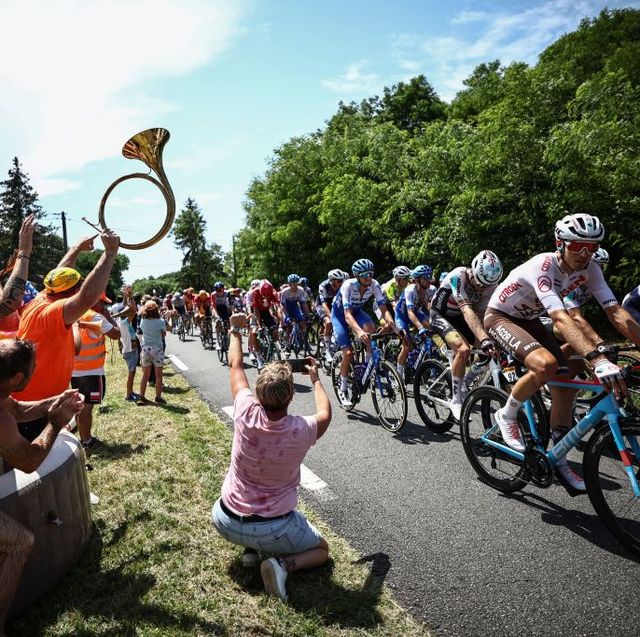
Gear-obsessed editors choose every product we review. We may earn commission if you buy from a link. How we test gear.
We all know that the pro cyclists that race in the men’s Tour de France are the best in the world. We also know that they’re fast— really fast. Have you ever wondered about the Tour de France average speed, though, and how you’d fare against a pro? Well, now you can see for yourself.
Average Time Trial Speed
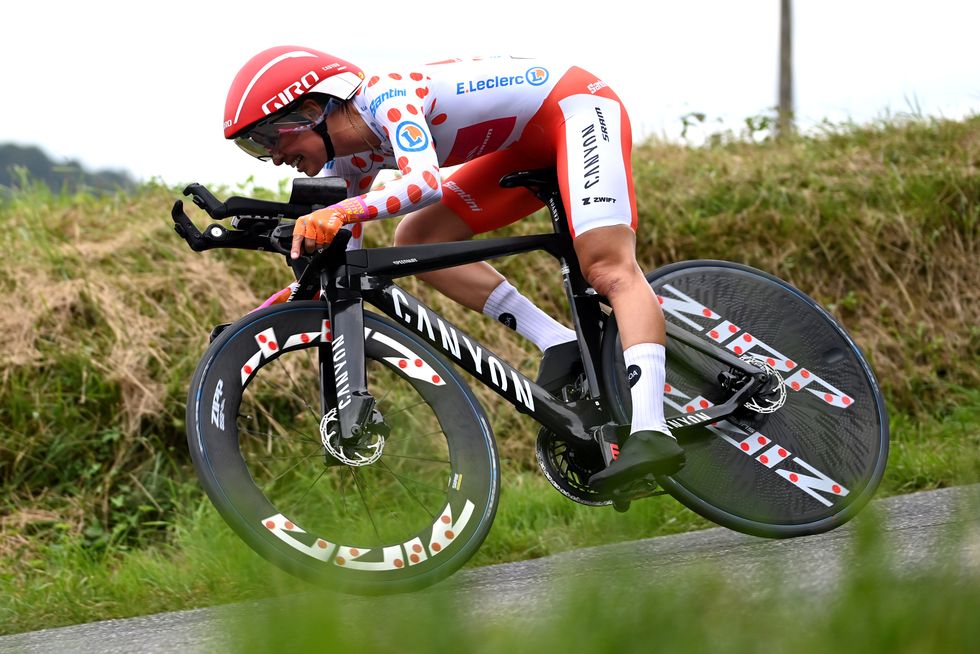
A Tour pro’s ability to produce more power for longer means that he would complete a 30K time trial about 20 minutes faster than the average rider. In other words, he’s really hammering.
Average Rider: 19 to 20 mph
Tour Pro: 29 to 31 mph
Average Speed on Flat Terrain
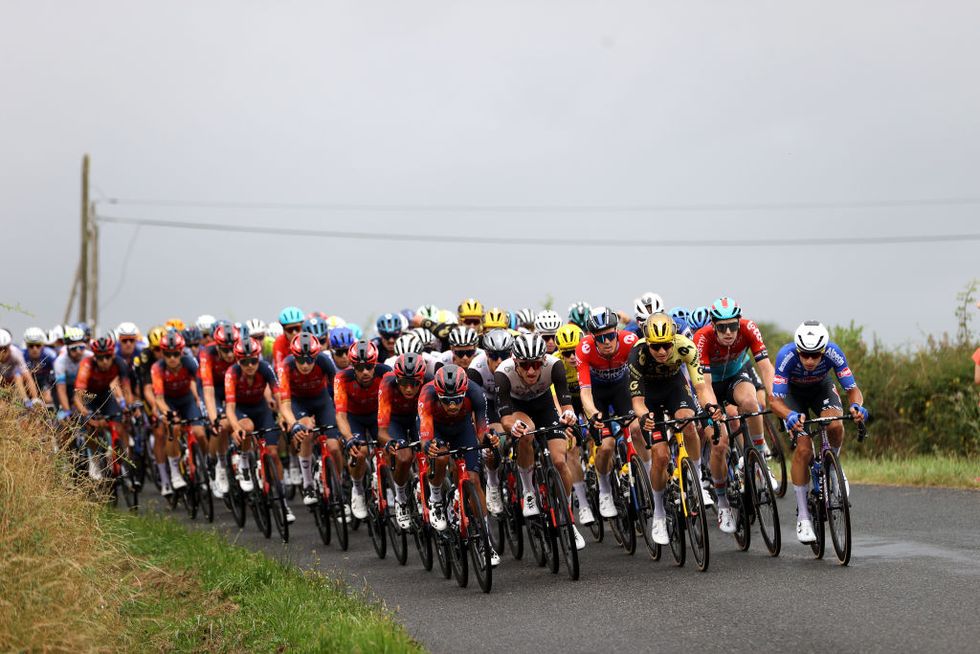
Even on flat land, a pro’s average speed in the Tour de France needs to be way up there in order to stay in the race. In fact, it’s usually about double that of an average rider.
Average Rider: 17 to 18 mph
Tour Pro: 25 to 28 mph
Maximum Sprint Power
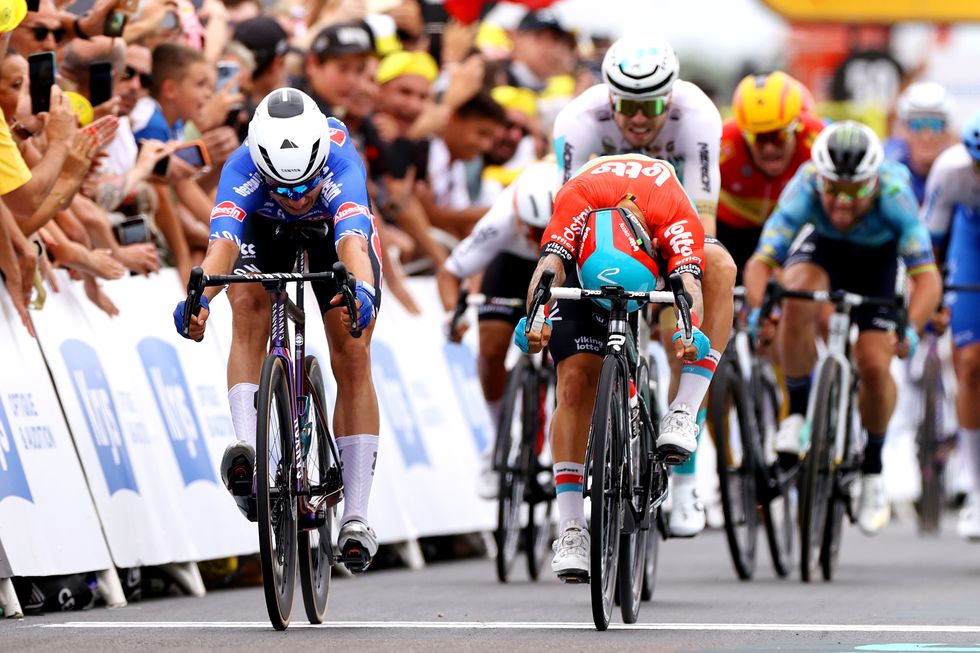
Sprinters generate incredible amounts of power in the final 15-second dash for the line. A rider like Mark Cavendish might hit 1,500 watts at the end of a flat field sprint.
Average Rider: 600 to 800 watts
Tour Pro: 1,200 to 1,400 watts
Average Speed Over Cobblestones
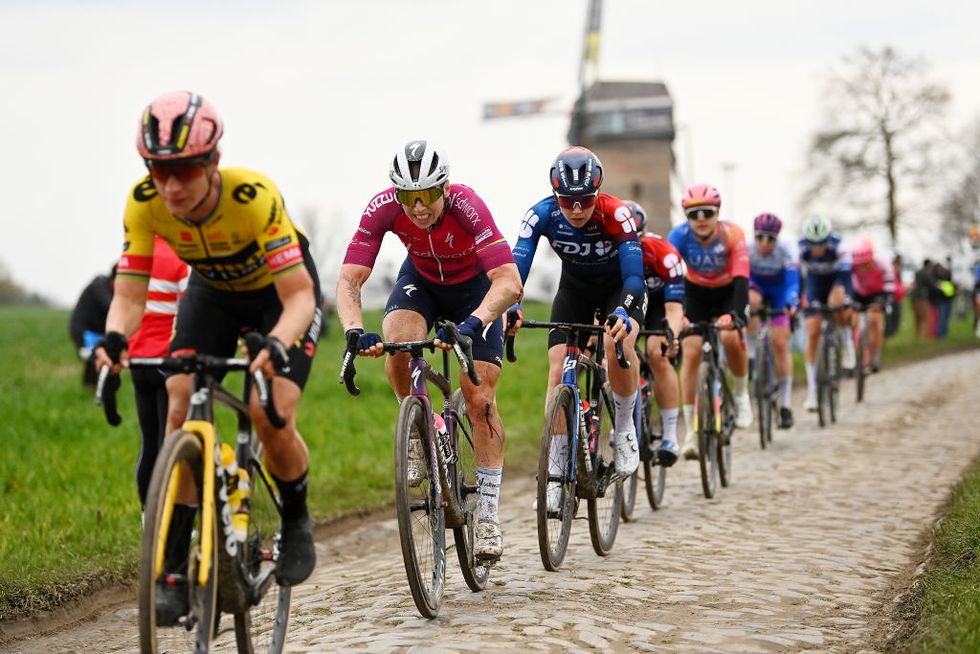
The Tour de France often features at least one section of cobblestones , known locally as pavé (though sometimes that’s exchanged for a stretch of gravel) . On a tough section, pros can average an incredible 22 to 24 mph.
Average Rider: 14 to 16 mph
Tour Pro: 22 to 24 mph
Average Resting Heart Rate
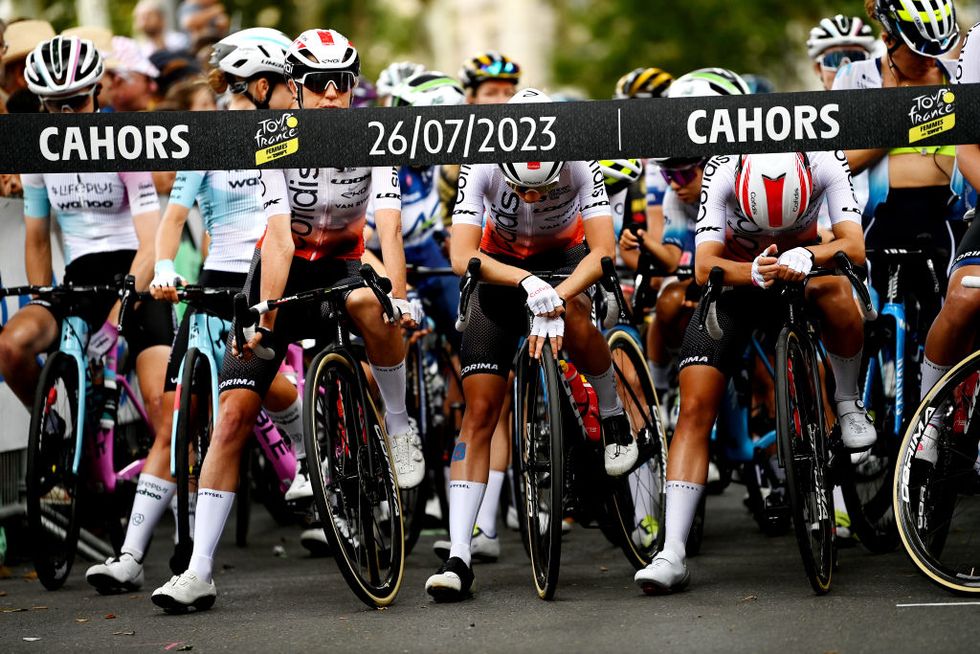
Team EF Education-EasyPost utilized WHOOP straps during the 2020 Tour to collect detailed biometric data on the athletes 24/7 over the course of the entire 21-stage race, with remarkable results. The data showed an average resting heart rate of 42 beats per minute for the team before the start of the Tour, and 40 bpm after the first rest day. And in other jaw-dropping heart rate stats, team cyclist Neilson Powless spent 38 percent of Stage 8 that year in the 90- to 100-percent zone for his max heart rate .
Average Rider : 60 to 100 bmp
Tour Pro : ~40 bmp
Sandwiches Consumed
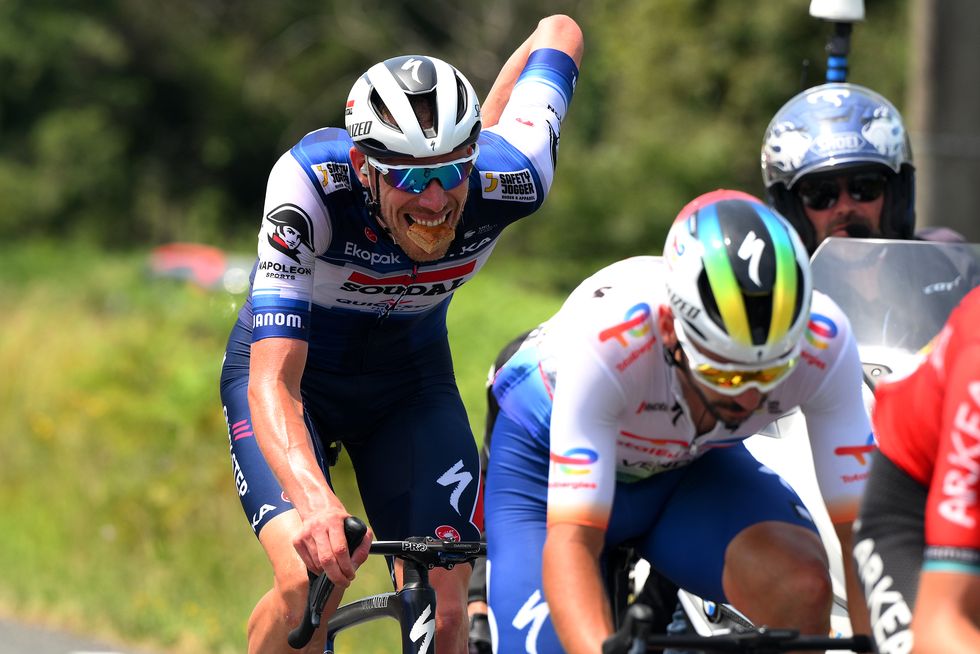
Soigneurs (all-purpose team assistants) make lunches for everyone on the team, including the staff. With about 12 to 15 staffers supporting a given team’s nine riders in France, that’s a lot of bread and a lot of sandwiches consumed over the course of three weeks.
Average Rider: 1 to 3 sandwiches
Tour Pro: ~30 sandwiches

Daily Bottles of Drink Mix Guzzled
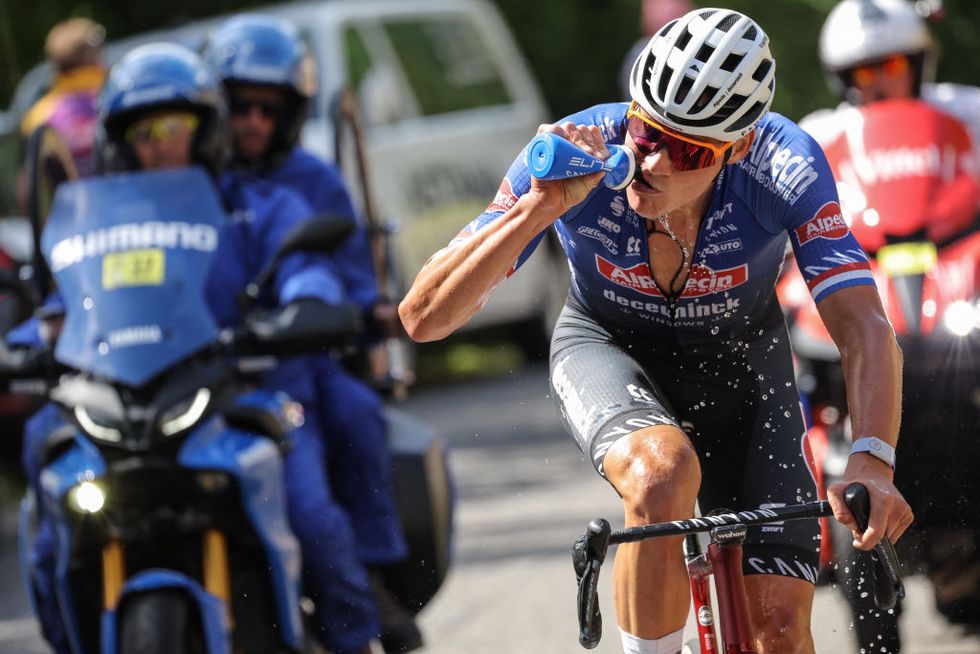
Depending on conditions, you might mix one or two bottles during one of your ride. A Tour de France soigneur might mix between 40 and 120 bottles for the team on each stage, which means an individual rider may throw back up to a dozen bottles or more.
Average Rider: 1 to 2
Tour Pro: 4 to 13
How Long it Takes to Climb the Col du Tourmalet
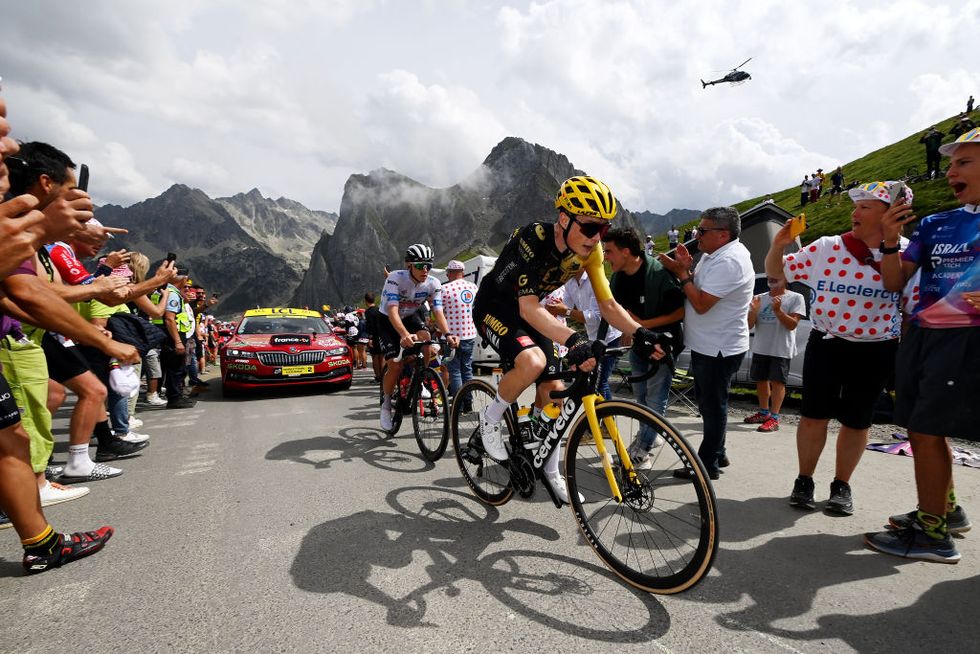
A pro climber will probably average about 350 to 375 watts on the climb up the Col du Tourmalet , one of the most famous climbs not just in the Tour, but in the entire cycling world. An ordinary rider would generate closer to 175 to 200—which means the Tour’s top climbers could ascend the Col nearly twice during your trip to the top.
Average Rider: 115 minutes
Tour Pro: 60 minutes
Bikes at Your Disposal
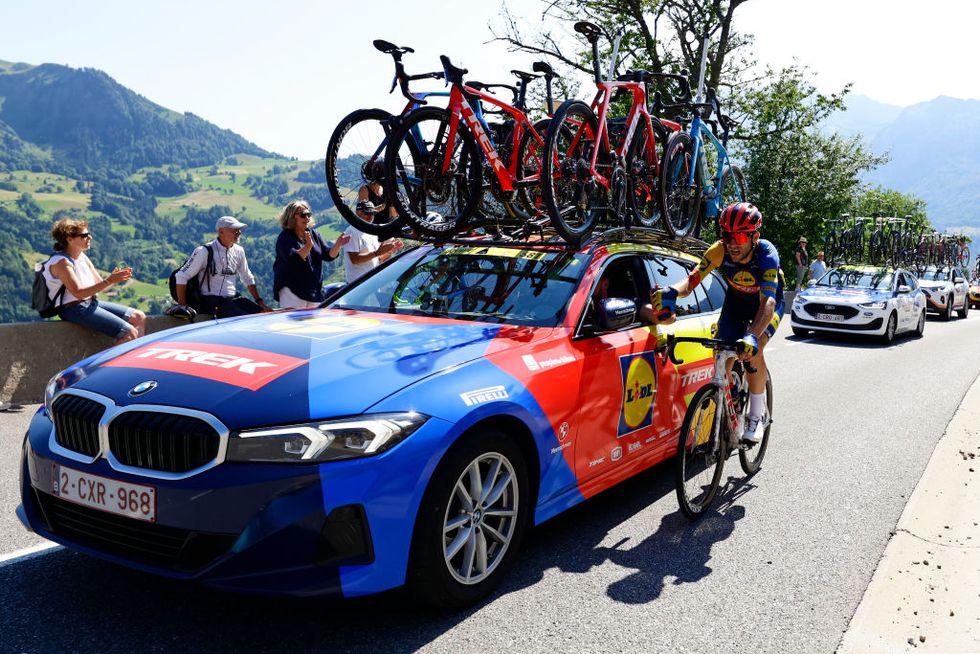
Depending on the rider and the team’s bike sponsor, most pros come to the Tour with an aero road bike for flatter stages, a climbing bike for the mountains, and a time-trial bike—not to mention spares. A general classification contender like Tadej Pogačar might have two or three of each.
Average Rider: 1 to 2 bikes
Tour Pro: 4 to 5 bikes
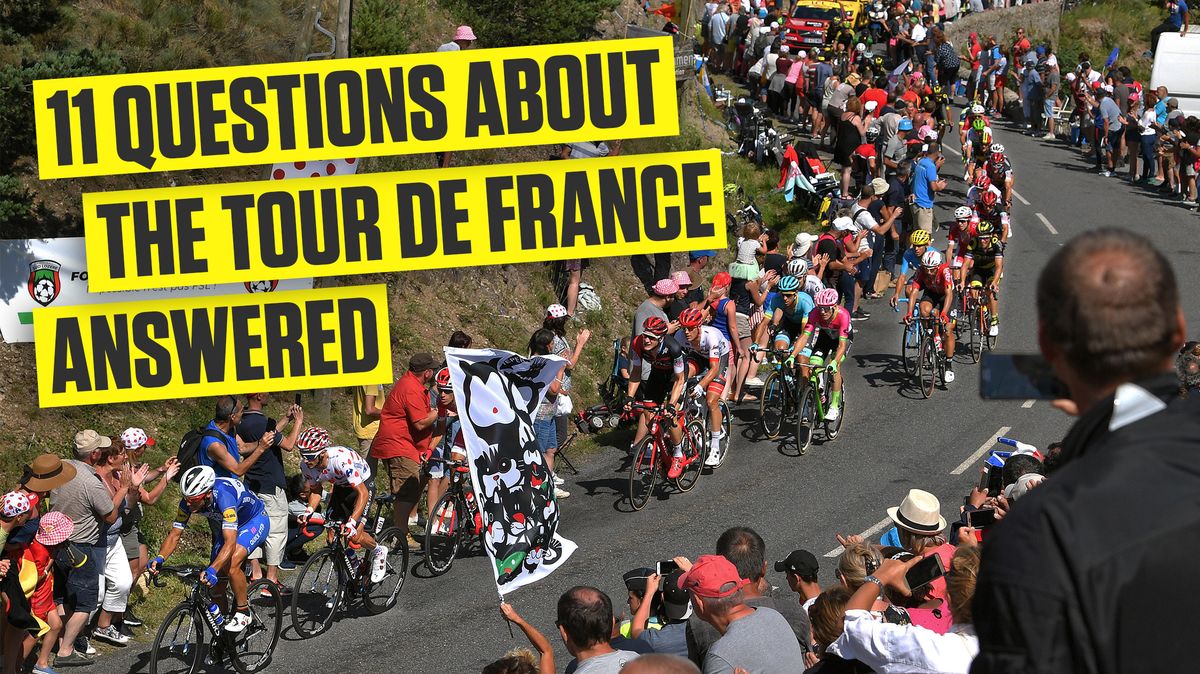
Since getting hooked on pro cycling while watching Lance Armstrong win the 1993 U.S. Pro Championship in Philadelphia, longtime Bicycling contributor Whit Yost has raced on Belgian cobbles, helped build a European pro team, and piloted that team from Malaysia to Mont Ventoux as an assistant director sportif. These days, he lives with his wife and son in Pennsylvania, spending his days serving as an assistant middle school principal and his nights playing Dungeons & Dragons.
.css-1t6om3g:before{width:1.75rem;height:1.75rem;margin:0 0.625rem -0.125rem 0;content:'';display:inline-block;-webkit-background-size:1.25rem;background-size:1.25rem;background-color:#F8D811;color:#000;background-repeat:no-repeat;-webkit-background-position:center;background-position:center;}.loaded .css-1t6om3g:before{background-image:url(/_assets/design-tokens/bicycling/static/images/chevron-design-element.c42d609.svg);} Cycling Tips

How to Enjoy Group Rides

Tips for Your First Century Ride

Change Your Breathing to Improve Your Performance

11 Tips for Conquering Your First Group Ride
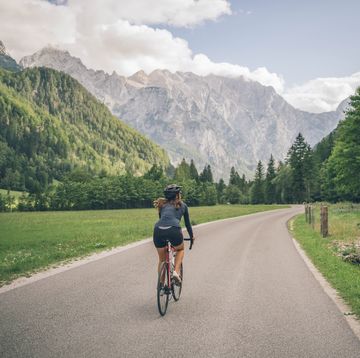
How Long Does It Take to Ride a Century?
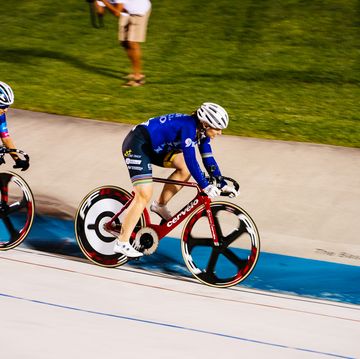
How to Crush Cadence Drills
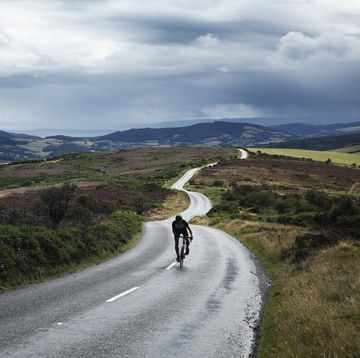
Stamina vs Endurance: What’s the Difference?
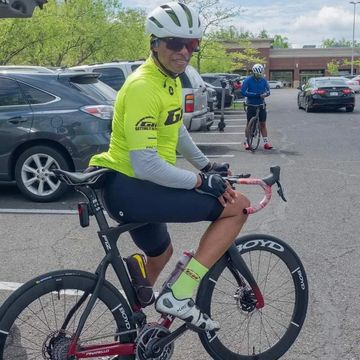
Cycling Tips for Older Riders
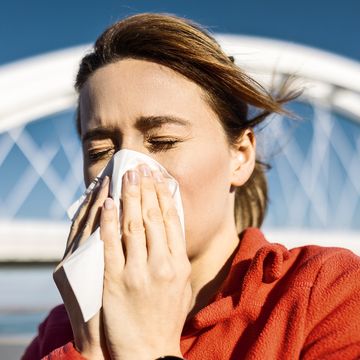
Allergies Ruining Your Ride? Here’s What to Do.
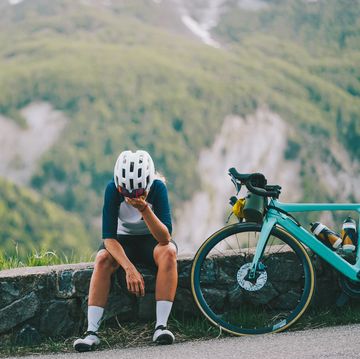
How to Avoid Bonking on Rides
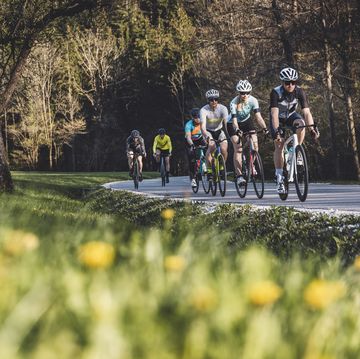
5 Spring Training Mistakes
- Tour de France
- Giro d'Italia
- La Vuelta ciclista a España
- World Championships
- Amstel Gold Race
- Milano-Sanremo
- Tirreno-Adriatico
- Liège-Bastogne-Liège
- Il Lombardia
- La Flèche Wallonne
- Paris - Nice
- Paris-Roubaix
- Volta Ciclista a Catalunya
- Critérium du Dauphiné
- Tour des Flandres
- Gent-Wevelgem in Flanders Fields
- Clásica Ciclista San Sebastián
- INEOS Grenadiers
- Groupama - FDJ
- EF Education-EasyPost
- Decathlon AG2R La Mondiale Team
- BORA - hansgrohe
- Bahrain - Victorious
- Astana Qazaqstan Team
- Intermarché - Wanty
- Lidl - Trek
- Movistar Team
- Soudal - Quick Step
- Team dsm-firmenich PostNL
- Team Jayco AlUla
- Team Visma | Lease a Bike
- UAE Team Emirates
- Arkéa - B&B Hotels
- Alpecin-Deceuninck
- Grand tours
- Countdown to 3 billion pageviews
- Favorite500
- Profile Score
- Stage 21 Game
- Stage 21 LiveStats
- Stage 21 Results
- Top competitors
- Startlist quality
- All stage profiles
- Hardest stages
- Winners and leaders
- Prizemoney ranking
- Fastest stages
- Statistics - Statistics
- Startlist - Startlist
- More - More
- Teams - Teams
- Nations - Nations
- Route - Route
- Results - Results
- »
- Average speed per stage
Follow-up links
- Fastest editions
- Most constant rider
- Smallest sum of results
- Most bonifications
- Hottest stages
- Leader jerseys
- Best worse result
- Combative riders
- Fastest first and last hour
- Timegap chart
- GC without TTs
- GC Without 1 stage
- GC without time bonusses
- Most GC time changes
- Points GC breakdown
- Least predictable
Grand Tours
- Vuelta a España
Major Tours
- Volta a Catalunya
- Tour de Romandie
- Tour de Suisse
- Itzulia Basque Country
- Milano-SanRemo
- Ronde van Vlaanderen
Championships
- European championships
Top classics
- Omloop Het Nieuwsblad
- Strade Bianche
- Gent-Wevelgem
- Dwars door Vlaanderen
- Eschborn-Frankfurt
- San Sebastian
- Bretagne Classic
- GP Montréal
Popular riders
- Tadej Pogačar
- Wout van Aert
- Remco Evenepoel
- Jonas Vingegaard
- Mathieu van der Poel
- Mads Pedersen
- Primoz Roglic
- Demi Vollering
- Lotte Kopecky
- Katarzyna Niewiadoma
- PCS ranking
- UCI World Ranking
- Points per age
- Latest injuries
- Youngest riders
- Grand tour statistics
- Monument classics
- Latest transfers
- Favorite 500
- Points scales
- Profile scores
- Reset password
- Cookie consent
About ProCyclingStats
- Cookie policy
- Contributions
- Pageload 0.1458s
- MAGAZINE OFFERS
- BIKE INSURANCE
- Best Products
- Maintenance
- Accessories
- Long-Term Reviews
- BikeRadar Podcast
- First Look Friday
- Bike of the Week
- Tech Features
- Routes and Rides
- Bike Galleries
- BikeRadar Bargains
- Buyer's Guides
- Fitness & Training
- Sizing & Fit
- Mountain Biking UK
- Cycling Plus
- Bike of the Year 2024
Tour de France 2019 in numbers | Can you guess the fastest recorded speed?
The key facts and figures from this year’s Tour de France, including Nils Politt's white-knuckle descent
Alex Broadway/ASO
Colin Henrys
After 23 days, 21 stages and more than 3,000km of racing, there could only be one winner of the 2019 Tour de France — but what were the key numbers behind Egan Bernal’s maiden Tour triumph?
The Colombian took the title in Paris, but an extraordinary three weeks saw Julian Alaphilippe light up the race throughout. Throw in elbow-to-elbow bunch sprints, hair-raising descents and brutally high climbs, and the 2019 race produced the kind of spectacle that only the Tour de France can.
The Tour’s official technology partner, NTT, has crunched the numbers from the 106th edition of cycling’s greatest race. Read on for some of the key facts and figures.
- The Tour tech of tomorrow | 3 predictions for the road bikes of the future
- Oliver Naesen rides final stage of Tour de France on steel Eddy Merckx bike
Top recorded speed: 101.5kph (63.1mph)
The fastest recorded speed at the 2019 Tour de France came on a white-knuckle descent of the Col de Vars by one of the peloton’s hard men.
Katusha-Alpecin’s Nils Politt – a top-five finisher at Paris-Roubaix and the Tour of Flanders this year – became the first rider to break the 100kph barrier according to the Tour’s official data feed, hitting a mind-boggling 101.5kph on a section of the descent with a negative 7 percent gradient.
The category one Col du Vars was the second of four ascents on stage 18, coming before the hors catégorie climbs of the Col d'Izoard and Col du Galibier. Politt eventually finished 44th on the stage, 21 minutes, 24 seconds behind Nairo Quintana.
Winner’s average speed: 40.58kph (25.2mph)
Egan Bernal conquered the Tour in a cumulative time of exactly 82 hours and 57 minutes. That gives him an average speed a shade above 40km/h for the 3,365.8km race.
For the numbers nerds, that's 0.35kph faster than Geraint Thomas’s average speed at last year's Tour.
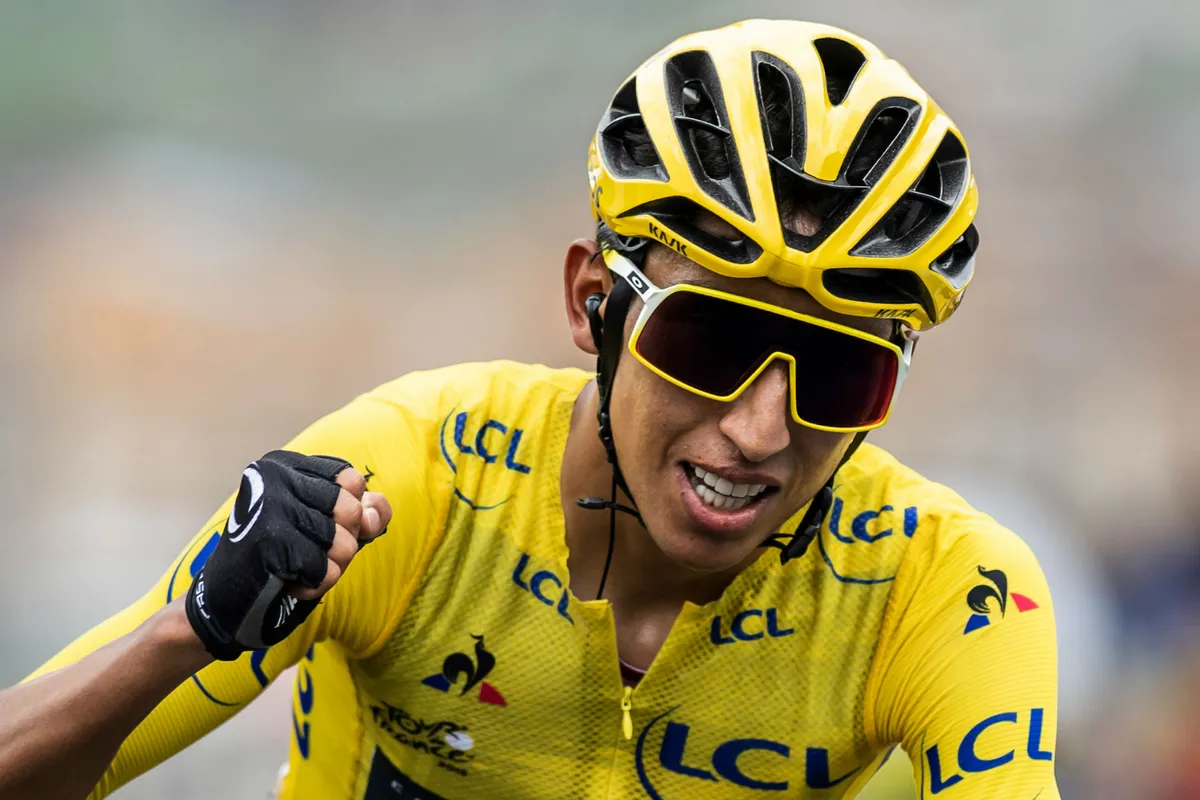
Speed difference between first and last place: 2.11kph (1.3mph)
At the other end of the scale, EF Education First’s Dutchman, Sebastian Langeveld, was this year’s Lanterne Rouge – the last rider on the general classification.
Langeveld’s cumulative time was four hours, 34 minutes and 23 seconds slower than Bernal’s – making his average speed 2.11kph slower.
Average climbing speed: 20.6kph (12.8mph)
Of course, the real difference in the 2019 Tour was made when the road pointed skywards – not least in the Pyrenees and the Alps.
Bernal was in imperious form in the mountains, following in the footsteps of many of his Colombian countrymen — a nation that has produced many fine climbers — and proving he has a head for heights.
Over climbs including the Col du Galibier, Col du Tourmalet and, most tellingly, the Col de l’Iseran, Bernal recorded an average climbing speed of 20.6kph.
Fastest Col du Galibier ascent: 22:28 minutes
Talking of Colombian climbers, while Bernal claimed the yellow jersey, there was also success for his countryman Nairo Quintana.
The Movistar rider ultimately finished eighth overall, failing to make a challenge on the podium, but he did claim a stage win in Valloire – and broke a long-standing Tour record in the process.
En-route to the finish, Quintana climbed the iconic Col du Galibier in 22 minutes and 28 seconds (measured over the final 8.5km from the Col du Lautaret). That's a whole minute faster than the mark Frank Schleck set in 2011.
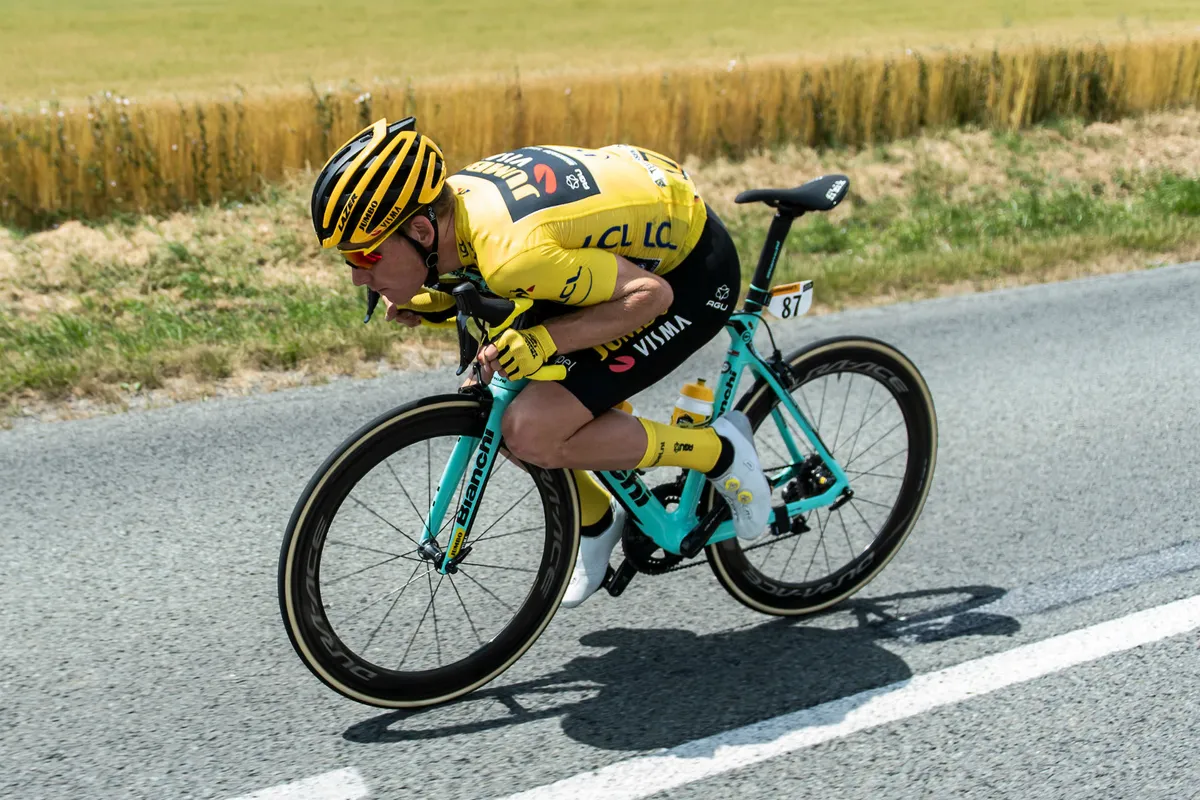
Number of different individual stage winners: 15
Quintana was one of 15 riders to claim a stage win in this year’s Tour de France – two more than there were in last year’s race.
Caleb Ewan led the way – his victory on the Champs-Elysees was his third of the race – while Great Britain’s Simon Yates won twice in the mountains.
From Mike Teunissen’s opening stage win in Brussels to Ewan’s final triumph, nine different nationalities stood on the podium as individual stage winners in this year’s race.
Number of stages won by overall winner: 0
Despite winning the race overall, Bernal wasn’t among those 15 riders. The Colombian earned his maiden Tour de France triumph without winning a stage.
Chris Froome was the last rider to do that (in 2017), though the four-time champion does have seven stage wins to his name in total.
Number of riders who wore the yellow jersey: 4
Bernal was one of four riders to wear the yellow jersey in all, having claimed the race lead after the shortened stage 19 on the Col de l’Iseran.
Bernal took over from Julian Alaphilippe, who claimed 14 yellow jerseys across two spells as race leader.
In between, Italian Giulio Ciccone led the race for two stages while the only other rider to pull on the maillot jaune was stage one winner Mike Teunissen.
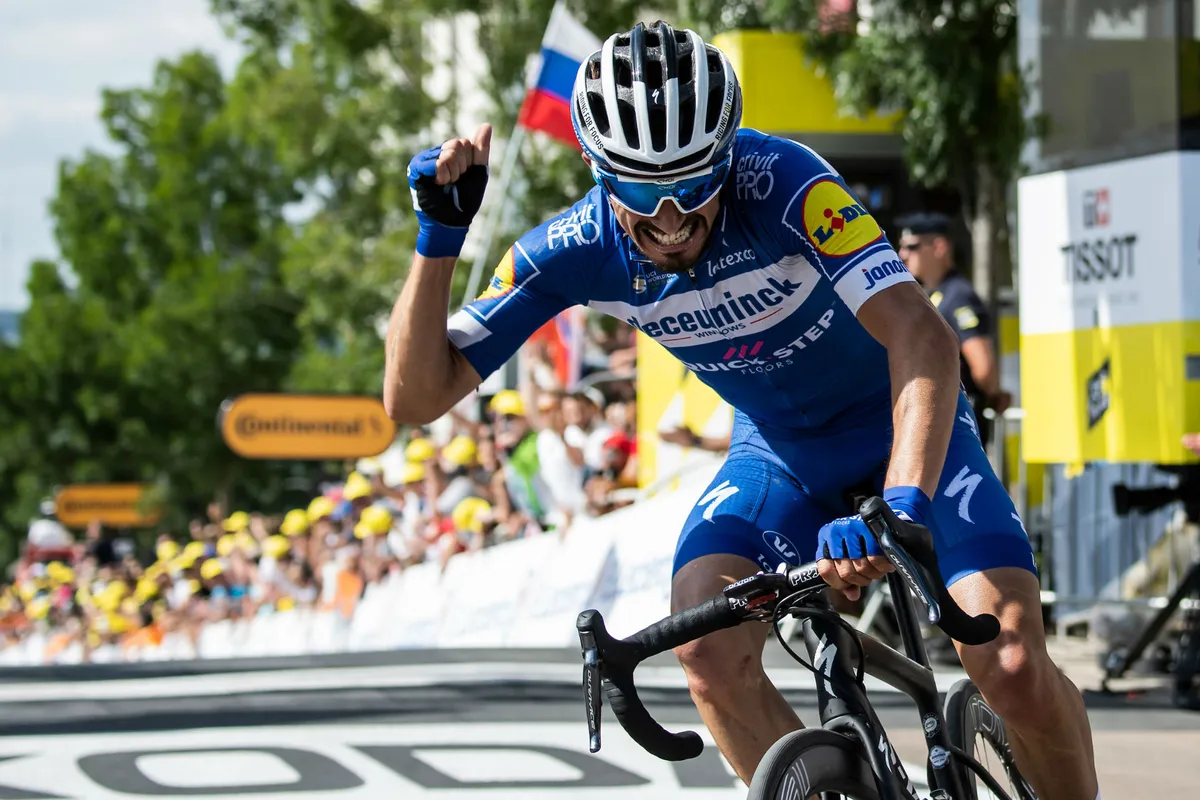
Age of winner: 22y, 196d
Bernal’s triumph not only made him the first Colombian to win the Tour de France, but he is also the youngest winner for 110 years.
Francois Faber was 22 years and 187 days old when he won the Tour in 1909 – just nine days younger than Bernal – while the youngest champion remains 19-year-old Henri Cornet in 1904.
Number of classifications won by Egan Bernal: 2
Bernal’s age means he not only won the yellow jersey but the white jersey for best young rider, too — only the fifth time since the youth classification was introduced in 1975 that has happened.
Bernal joins Laurent Fignon (1983), Jan Ullrich (1997), Alberto Contador (2007) and Andy Schleck (2010) in the record books.
Number of finishers: 155
Some 176 riders set out from Brussels for the 106th Tour de France on Saturday 6 July, with 155 making it all the way to the Paris finish line.
Thibaut Pinot, who had to climb off the bike during stage 19 having been in overall contention, was the last of 19 riders to abandon this year’s race.
A further two – Tony Martin and Luke Rowe – were disqualified after an altercation on the way to the stage 17 finish line.
Share this article

- Terms & Conditions
- Subscribe to our magazines
- Manage preferences
Five moments that defined the 2022 Tour de France
From Roglic's crash to the Pyrenean power play, we dissect a spectacular edition of the Grande Boucle
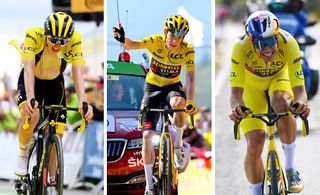
As always, it was a Tour de France of a thousand stories, from Fabio Jakobsen’s emotional win in Nybørg to Michael Mørkøv’s doomed but noble effort to finish inside the time limit at Carcassonne; from Michael Matthews’ craft at Mende to Tom Pidcock’s drifting descent of the Galibier.
Run off at an average speed in excess of 42km, the 2022 Tour de France was the fastest in history, and it exacted a brutal toll on its participants. COVID-19 contributed to the rate of attrition, but so too did the searing heat and relentless nature of the racing. Just 135 riders made it to Paris, the lowest number of finishers since 2000.
There were compelling performances from men like Geraint Thomas , who placed third after what was perhaps the most complete Tour he has even ridden, or Romain Bardet, who battled gamely either side of a dreaded jour sans in the Pyrenees. David Gaudu began to deliver on his considerable promise with a fine 4th place finish in Paris.
As the Tour drew on, however, it became increasingly clear that the race for yellow was again a straight fight between Tadej Pogačar and the Jumbo-Visma collective. In 2020 and 2021, Pogacar had the better of that contest. This time out, the team in yellow and black had his number, as Jonas Vingegaard emerged to claim Denmark’s second overall title after Bjarne Riis in 1996.
Cyclingnews looks back at some of the moments that defined his victory.
Roglič’s crash on the road to Arenberg
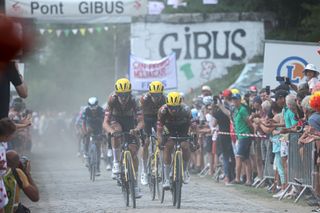
It’s not quite Tom Brady and Drew Bledsoe, but would Jonas Vingegaard have risen to become a Tour winner so soon without the misfortune that has befallen his Jumbo-Visma teammate Primož Roglič on this race?
A year ago, Roglič’s early crash left an opening for Vingegaard to step up unexpectedly as team leader. This time out, Roglič’s fall on stage 5 changed the dynamic at Jumbo in a way that allowed Vingegaard to go on and win the race.
Get The Leadout Newsletter
The latest race content, interviews, features, reviews and expert buying guides, direct to your inbox!
Roglič and Vingegaard set out from Copenhagen as near co-leaders, though Jumbo-Visma’s configuration at the Critérium du Dauphiné suggested that the Slovenian remained half a step ahead in the hierarchy. If Roglič and Vingegaard had both reached the mountains locked on the same time, Jumbo-Visma may well have elected to ride cautiously in the Alps to keep both their contenders in the hunt.
Instead, the complexion of Jumbo-Visma’s Tour was shifted by a loose bale of hay on a roundabout 30km or so from the finish of stage 5 in Arenberg. Roglič had successfully navigated six sectors of cobbles – more successfully than Vingegaard, who was chasing furiously at that point – but he was among the unfortunate fallers. Roglič dislocated his shoulder in the crash, and he was forced to pop it back in himself before remounting. Somehow, he limited his losses to 3 minutes – not enough to save his Tour ambitions, but just enough to force Pogačar to keep him under observation.
Roglič’s misfortune was the headline story from a tumultuous day on the cobbles, but, in hindsight, Jumbo-Visma’s rescue operation for Vingegaard was also pivotal. The Dane’s calamitous, three-part bike change looked to have torpedoed his chances, but Wout van Aert helped to stitch him back into the race for the yellow jersey, just as Roglič’s challenge was unravelling.
Going long at Longwy
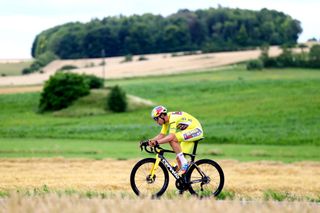
There was a time when riding the Tour was an exercise in saving energy. Writing in Cycle Sport in the 1990s, Philippa York wrote a Tour rider’s survival guide that included the immortal maxim: "Never stand when you can sit, never sit when you can lie down."
On the road, general classification contenders also meted their efforts out carefully in the opening phase, picking and choosing when to strike later on. Key climbing domestiques, too, were generally ordered to sit up where possible.
All of that appears to have gone out the window in recent seasons, at least in some specific cases. Van Aert’s all-action Tour not only saw him win three stages and the green jersey, he was also Vingegaard’s key domestique in the mountains of the third week. Yet despite that hefty workload, he saw little reason to spare himself when he spent four days in yellow in the opening week.
On stage 6 to Longwy, Van Aert took the radical step of defending his yellow jersey by going on the attack from the very start of the day. Behind, there was an ecstasy of fumbling to get on his wheel. Undeterred, Van Aert simply kept on accelerating for over an hour, stringing out the bunch until they eventually relented after 80km or so and he got his way. The Belgian would burn off his breakaway companions Jakob Fulgsang and Quinn Simmons before he was eventually reeled in by a splintered bunch on the hilly finale.
Van Aert lost seven minutes and yellow that day, but he couched his move as a sacrifice on behalf of his team, who hadn’t been charged with controlling what was always likely to be an unruly stage.
Pogačar’s UAE Team Emirates squad instead took up the reins on the run-in, and the Slovenian delivered a long, long sprint to beat his friend Michael Matthews to the line. A day earlier, Pogačar had attacked on the cobbles and 24 hours later, he would outlast Vingegaard on La Planche des Belles Filles. Like Van Aert, saving energy didn’t seem to figure in Pogačar’s thinking at this Tour, an approach that would prove costly.
Pogačar cracks on the Col du Granon
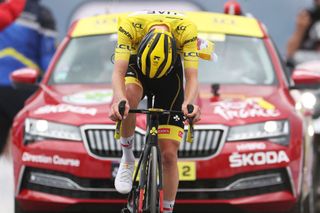
The account was ultimately settled on the Col du Granon, but Pogačar’s costly bill was run up on the Col du Galibier. The defending champion, as we saw, had made no concession to sparing himself in week one, and he saw no reason to start when Jumbo-Visma’s duo of leaders began attacking him in turns with 60km left in stage 11.
Rather than allow Roglič, almost three minutes down overall, even an inch of leeway, Pogačar immediately shut down his move, and he was obliged to do likewise when Vingegaard entered the fray shortly afterwards. By then, Pogačar’s UAE Team Emirates guard had already been distanced by the accelerations, but the yellow jersey didn’t seem unduly concerned. Instead, he joined happily in the strongest man competition, responding to Jumbo’s tag-team efforts with digs of his own.
It was like trying to calm a storm by shouting over it, yet for a time it worked. Only Vingegaard could hold Pogačar’s wheel over the Galibier. Even in the next valley, when the front group swelled and Pogačar was outnumbered by five Jumbo jerseys, it still felt like the Slovenian could defend his maillot jaune alone all the way to Paris, like Horatius at the bridge. As if to hammer home the idea, Pogačar smilingly made light of the intensity of the stage when the television motorbike drifted by.
On the upper reaches of the Col du Granon, that levity gave way to a leaden pedal stroke. Not even the presence of Rafal Majka could help Pogačar, who buckled under the weight of Vingegaard’s acceleration with 5km to go. He would lose 2:51 by the summit, together with his yellow jersey and his air of invulnerability.
The Tour had changed utterly.
Pyrenean power plays
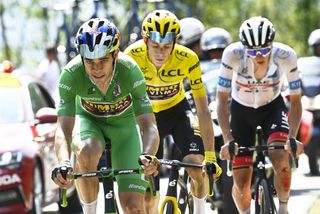
Both Jumbo-Visma and UAE Team Emirates were depleted come the final week of the Tour. COVID-19 had entered the UAE camp, leaving just four men standing by the start of stage 17, while Jumbo lost Roglič and Kruijswijk on one fraught day on stage 15.
That afternoon in Carcassonne, UAE manager Mauro Gianetti downplayed the impact of absent teammates on the final week. "The Tour will be decided by the leaders on the big mountains, not by their teams," Gianetti said. He wasn’t exactly right, but he wasn’t entirely wrong either.
As it turned out, teammates did play a significant role in the troika of stages in the Pyrenees, even if the Tour was by this point, of course, a straight duel between Vingegaard and Pogačar. Athletes of the pedigree of Thomas, Gaudu and Bardet, who all rode fine Tours - perhaps the best of their careers - were no longer in the same postcode as the men ahead of them. Jumbo and UAE were in a race of their own, as they had been from Copenhagen.
On the opening Pyrenean leg to Foix, Jumbo-Visma looked to nullify any late Pogačar offensive by depositing Van Aert in the early break, a tactic they would revisit two days later on the road to Hautacam. In between, Pogačar’s grand offensive came on stage 17, where the rouleur Mikkel Bjerg discovered hitherto unseen wings to shred the yellow jersey group at the foot of the Col du Val Louron-Azet, before Brandon McNulty took over, with only Pogačar and Vingegaard able to follow.
Pogačar outsprinted Vingegaard to claw back four bonus seconds at the finish in Peyragudes, a meagre return on the energy invested. Perhaps it was telling that Pogačar elected to stay on McNulty’s wheel throughout the raid, aside from a short dig over the top of the penultimate climb. It felt like a tacit admission that Vingegaard was the strongest man on show.
Pogačar being Pogačar, he summoned up a volley of attacks on the penultimate climb of the Tour the next day, but Vingegaard was again implacable on the Col des Spandelles. Pogačar’s crash on the descent, meanwhile, effectively ended the Tour as a contest, even if there was now one more show of force from Jumbo-Visma as they teed up Vingegaard for stage victory at Hautacam.
Van Aert had attacked from kilometre zero and spent the day on the front of the race, but he somehow still had enough force left to take up pace-making duties when Vingegaard and Pogačar bridged up to him with a little over 5km remaining. Barely a mile later, one of the best sprinters in the world had dropped the man who had won the previous two Tours.
Questions worth asking
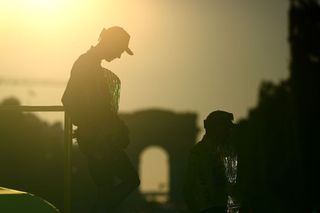
Jumbo-Visma’s supremacy was total on this Tour. Vingegaard won the race and the king of the mountains title. Van Aert landed the green jersey with a record tally and was elected the Tour’s most combative rider. The Dutch squad won six stages, across all terrains.
Faced with such dominance, it is reasonable to ask questions, even if – as Michael Rasmussen pointed out – good answers are unlikely to be forthcoming through the medium of the press conference. Still, the Tour winners of the recent past have usually understood the drill. The Tour is a bellwether for the health of cycling, and the credibility of the maillot jaune is emblematic of the probity of the sport as a whole.
Vingegaard, like others before him, accepted the premise when faced with the question in his press conference in Gramat on Saturday evening. The gist of his answer – "trust us, we’re clean" – may have been light on detail, but at least the Dane understood that doping in cycling is an issue that always warrants discussion.
The reaction of his teammate Van Aert, on the other hand, was lamentable. Asked about the credibility of Jumbo’s performances, the Belgian complained huffily about what he deemed to be a "shit question". He should know that scepticism is only to be expected in the face of extraordinary performances. The onus is on him and his team to offer enough transparency to assuage those concerns. In that light, Van Aert’s eventual response – "We worked super hard for this, and cycling has changed" – was, if he will pardon the expression, a shit answer.
But it is true, too, that some constructive questions should be directed elsewhere, most notably to the UCI. In the 18 months since the UCI put doping controls in the hands of the ITA, not a single rider has tested positive in the men’s WorldTour. Does this mean doping has been eradicated or is the testing simply not adequate?
And what of the biological passport, which has not successfully prosecuted a WorldTour rider in years? Is the testing regime fit for purpose? Europol, who coordinated searches of Bahrain Victorious before the Tour, are among those who appear to have their doubts.
Until those issues are addressed, then questions like those fielded by Van Aert and Vingegaard on Saturday evening will inevitably – and rightly – continue for the Tour winners of the future.

Thank you for reading 5 articles in the past 30 days*
Join now for unlimited access
Enjoy your first month for just £1 / $1 / €1
*Read any 5 articles for free in each 30-day period, this automatically resets
After your trial you will be billed £4.99 $7.99 €5.99 per month, cancel anytime. Or sign up for one year for just £49 $79 €59
Try your first month for just £1 / $1 / €1
Barry Ryan is Head of Features at Cyclingnews. He has covered professional cycling since 2010, reporting from the Tour de France, Giro d’Italia and events from Argentina to Japan. His writing has appeared in The Independent, Procycling and Cycling Plus. He is the author of The Ascent: Sean Kelly, Stephen Roche and the Rise of Irish Cycling’s Golden Generation , published by Gill Books.
London Academy: Changing women's cycling for the better
Five moments that defined the 2024 Giro d’Italia
10 contenders at Unbound Gravel – Can Swenson or Schiff make it two in a row?
Most Popular
Tour de France Time Trial Winners’ Average Speed
The time trial (TT) is a special discipline where the riders use a time trial bike to compete instead of their regular road bike. Within the time trial, there are sub-disciplines, such as the Individual time trial (ITT) and the Team time trial (TTT).
#TDF2023 ⏱️ It's time trial day on Stage 16. 🚀 Here are the 3 fastest ITTs above 10km at the Tour de France 🇫🇷. 2015 (13.5km): Rohan Dennis 🇦🇺, 55.446km/h 1989 (24.5km): Greg Lemond 🇺🇸, 54.545km/h 2005 (49km): David Millar 🏴, 54.361km/h — Mr. Mamil (@MrMamil) July 18, 2023
Fastest Individual Time Trial (above 10km) average speed
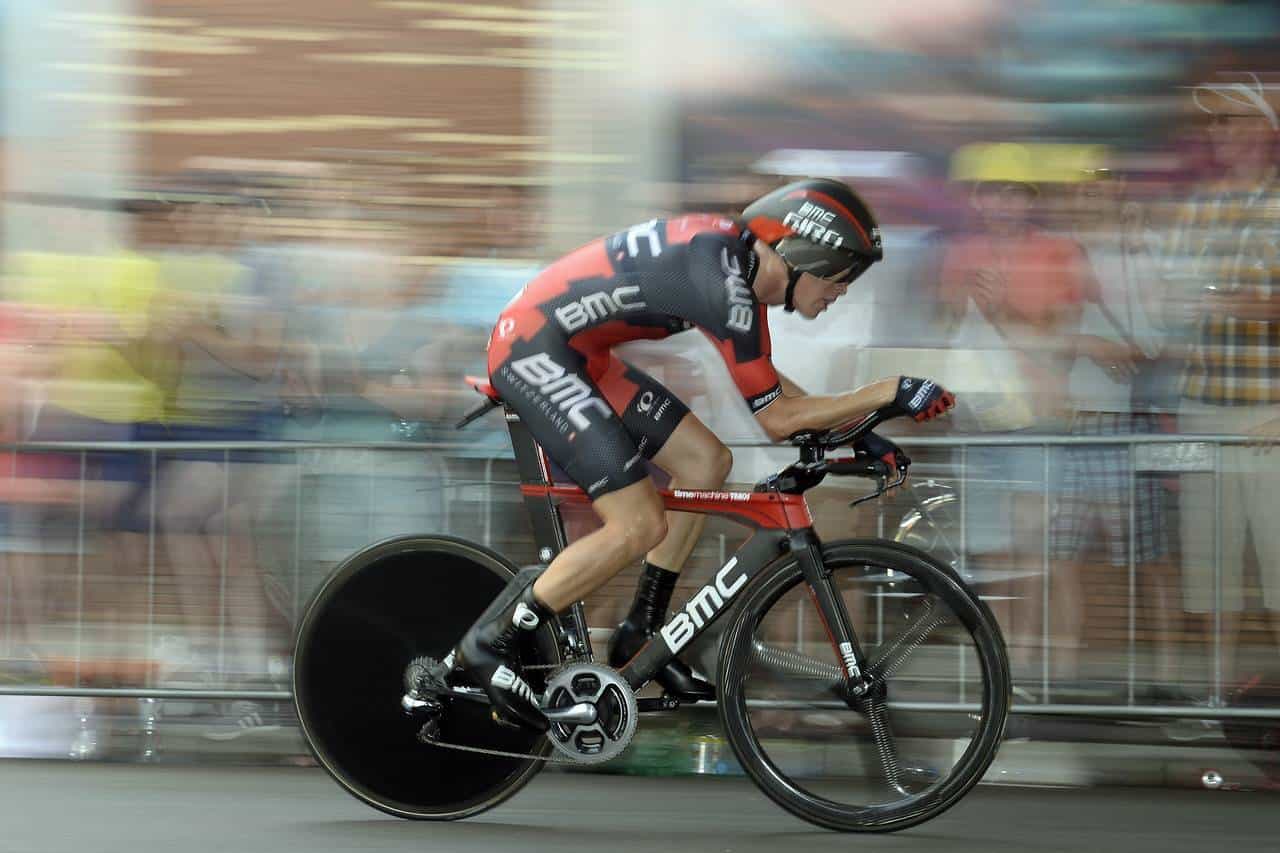
Individual Time Trial (ITT) is competed individually with no drafting allowed. Riders are flagged off between 60 to 90 seconds apart, with the last rider on the General Classification to start first.
The Tour de France would feature at least an ITT stage depending on the year and route. In some years, it would feature a combination of a prologue, ITT, and TTT. In 2012, there were two ITT stages and a prologue, which had a total of 101km (63.3 miles) of time trailing. This puts Bradley Wiggins as the favorite to win as he’s a very strong time trialist compared to his nearest competitors.
In the past five editions, the time trial has been reduced to a total distance below 60km (37.5 miles) which is advantageous to pure climbers. In 2020, there was only one ITT, and it was a mountain time trial up La Planche des Belles Filles where Primoz Roglic cracked, and Tadej Pogačar overtook him to win his first Tour de France.
Eight of the top 10 fastest average speeds occurred after the year 2000. This can be attributed to the advancements in aerodynamics and bike technologies in recent years.
Rohan Dennis holds the fastest Individual Time Trial average speed at 55.446kph in 2015. He finished the 13.8km route in 14’16”.
Fastest Individual Time Trial / Prologue (below 10km) average speed
A prologue is a very short time trial below 10km and usually sees speeds above 50km/h.
Chris Boardman holds the fastest prologue average speed of 55.152km/h for the 1994 stage in Lille. He finished the 7.2km stage in 7’49”, 15 seconds ahead of second-place Miguel Indurain.
The last Tour de Frace prologue was held in 2012 at Liège, Belgium. Fabian Cancellara finished the 6.4km (4 miles) route in 7’13” with an average speed of 53.210km/h, putting this ride the fifth fastest of all time.
Fastest Team Time Trial average speed
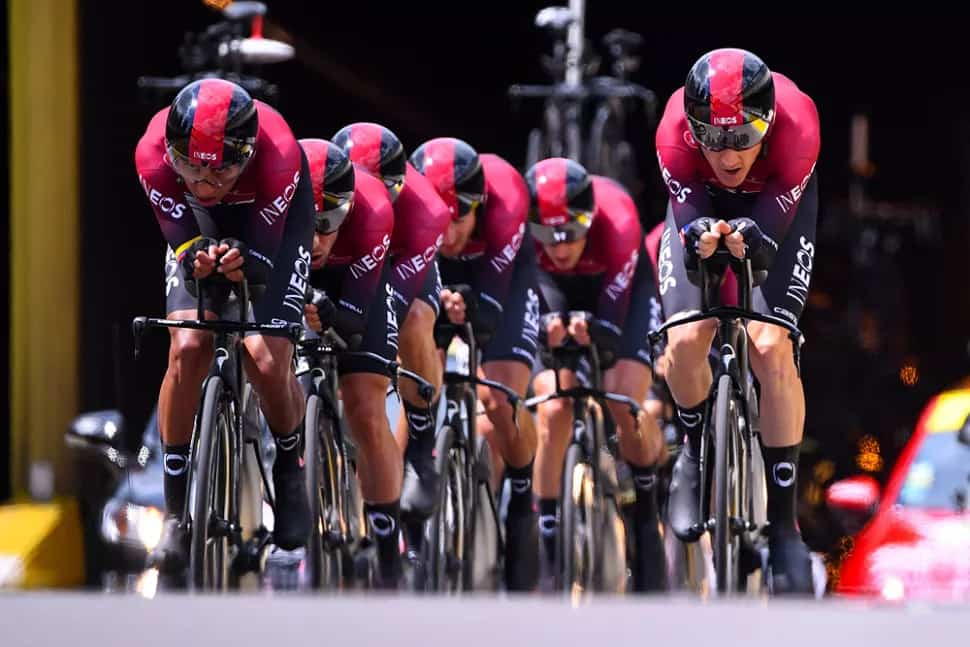
The Team Time Trial (TTT) is competed by the entire team. Riders are allowed to draft each other for maximum aerodynamic benefits. It’s a joy to watch, especially with a well-oiled team that makes it look effortless.
The main challenge of TTT is race pacing and planning. Each rider in the team has their strengths and weaknesses. One main challenge is finding the right balance between speed and effort to play to the time trialists’ strengths while minimizing the time losses for the climbers.
The finishing time is taken when the fifth rider passes the finishing line,
The last three TTT were held on Stage 2 in 2019, stage 3 in 2018, and Stage 9 in 2015.
Orica GreenEDGE set the fastest ever TTT average speed of 57.841km/h, finishing 25km in 25’56”, 1 second ahead of Omega Pharma-Quick-Step and 2 seconds ahead of Team Sky.
Tour de France Race Guide
2023 Tour de France on TV Broadcasts Availability
2023 Tour de France Prize Money Breakdown
How is the 2023 Tour de France Time Limit Calculated?
What is the meaning of Tour de France Jersey Colors?
Why is the Tour de France So Popular?

Alex Lee is the founder and editor-at-large of Mr. Mamil. Coming from a professional engineering background, he breaks down technical cycling nuances into an easy-to-understand and digestible format here.
He has been riding road bikes actively for the past 12 years and started racing competitively in the senior category during the summer recently.
Mr. Mamil's content is for educational and entertainment purposes only. The content is not a substitute for official or professional advice. Please do your own due diligence.
Mr. Mamil participates in the Amazon Services LLC Associates Program, an affiliate advertising program designed to provide a means for us to earn fees by linking to Amazon.com and affiliated sites. We also participate in various other affiliate programs, and at times we earn a commission through purchases made through links on this website.
Privacy Policy
Website Terms
© Mr. Mamil, 2023
Tadej Pogačar underlines dominance with biggest Giro d'Italia winning margin in 59 years — and he's not done yet
Analysis Sport Tadej Pogačar underlines dominance with biggest Giro d'Italia winning margin in 59 years — and he's not done yet
Tadej Pogačar has confirmed, once again, everything that we thought we knew.
The Slovenian cyclist is, quite simply, a freak.
By winning the 2024 Giro d'Italia in such emphatic fashion, the 25-year-old wrote himself into the mystic annals of a sport that craves the romantic more than any other.
On the face of it though, there is little to be misty-eyed about.
Pogačar's winning margin of nine minutes and 56 seconds is borderline obscene.
Not since Jan Ullrich won the 1997 Tour de France by nine minutes and nine seconds has a rider claimed victory at a grand tour by over nine minutes.
In fact, Pogačar's winning margin is the biggest at a grand tour since Laurent Fignon won the 1984 Tour by 10:32, the largest at a Giro since Vittorio Adorni in 1965.
His six stage wins is the most by a Giro general classification winner since Eddie Merckx did the same in 1973.
'The best I've raced with': Thomas
Pogačar may have just sealed his third grand tour, but in truth, the Slovenian racks up wins for fun across multiple disciplines and race-types.
He already has six one day Monument victories that has led to some branding him the second coming of Merckx, the most versatile rider of the past half century.
While Merckx was called the Cannibal for his insatiable appetite for victories, Pogačar has been christened the Cannibale Gentile by Gazetta della Sport, the gentle cannibal.
"For me he's the best I've raced with I think," said third-placed finisher and peloton veteran Geraint Thomas.
"And I've raced with a lot of good guys."
The 38-year-old sure has, counting among his one-time teammates five-time Olympic gold medal winner and 2012 Tour de France champion Bradley Wiggins, seven-time grand tour winner Chris Froome and the greatest grand tour sprinter in history, Mark Cavendish.
Thomas, who celebrated his 38th birthday on Saturday's penultimate stage is also a contemporary rival of seven-time grand tour winner Alberto Contador and four-time winner, Primož Roglič.
"He's [Pogačar's] just so versatile and aggressive, and all year round as well.
"It's not just – well, like me, for a couple of months a year where you're good. It's insane how talented he is.
"The only thing is he makes us look pretty slow, but that's the whole peloton, that's not just me."
Pogačar's palmarès already rivals the very best in the sport.
When he won the first of his two Tours de France in 2020 aged 22, he was the youngest winner in 116 years.
His back-to-back victories were only halted by Jonas Vingegaard's emergence as a grand tour specialist .
It is realistically only the Danish rider who stands between Pogačar and a feat not seen in cycling since Marco Pantani managed it in 1998, a Giro-Tour double.
Indeed, Pogačar has already emulated the Italian legend by overcoming a mechanical at the base of the climb to Santuario di Oropa on stage seven , where Pantani did the exact same thing in 1999.
Back to the present though, and two-time defending champion Vingegaard is unlikely to reach the start line in peak condition following his shocking crash earlier in the season that resulted in a collapsed lung, among other injuries .
"Jonas [Vingegaard] is the only guy that's really on the same level as him," Thomas said.
"But it's yet to be seen how he is.
"The rest – of course, there's always a chance, it's a bike race, but on pure physical talent he's unique."
A three-week long coronation
Sunday's celebratory procession around Rome was Pogačar's coronation but, in truth, much of the preceding three weeks has been little more than a homage to his greatness.
Saturday's penultimate stage was a case in point .
Pogačar burned through his teammates before embarking on a solo ascent of the Monte Grappa — during which he handed out alms in the form of bidons to young roadside admirers and high fives to others, while also chastising those others who dared reach out to him — in an astonishing display of reckless power.
That 18km long climb, with an average gradient of 8.1 per cent was less of an obstacle to overcome and more a ramp towards his inevitable podium.
"I wanted to finish the Giro with a good mentality and in good shape. I think I achieved that," he said at the finish.
His triumphant roll into the finish in Bassano del Grappa, during which he saluted and bowed to an adoring public like the conquering hero he has become, was a worthy tribute to a man who has lit up a race that his own dominance threatened to overshadow.
"Are you not entertained?" was Pogačar's emphatic demand of a people who know they are witnessing majesty.
If they weren't, they should have been.
Pogačar's mix of dashing attacks and solo chases dared those on the roadside to equate his flamboyant dominance to that displayed by the mechanised deployment of Team Sky at the height of their powers.
Those comparisons are moot though. Never has a rider attacked so wilfully, with such regularity, and with such consummate ease over the duration of a race that will go down in history.
Former grand tour winner Sean Kelly said on Eurosport that there has never been a rider like him, "He has got everything."
'Pog is on a different planet'
Pogačar has held such mastery over his rivals at the Giro that he has seemingly been racing against himself — and everyone knows it.
"People were giving the GC guys and me abuse for just racing amongst ourselves," Thomas said on his podcast, Watts Occurring, during the second week of the race.
"To put it in perspective, anyone out there that's a runner, if your best 10k run is 40 minutes, if you start off at 30 minute pace for 20 minutes, just see what happens.
"You're going to blow your doors off, you're going to creep in, and you'll do 49 minutes rather than 40.
"That's what it was like today [on stage 15], I could try and stay with him [Pogačar], but I knew I didn't have the legs, especially with the altitude and everything.
"You can completely blow your doors off.
"It sounds defeatist, but at the end of the day, Pog is on a different planet."
Tour tilt on the cards
So who can stop this seemingly unstoppable Slovene sensation?
Three weeks is a long time to race, and the cumulative fatigue of dominating a race to the extent that he has — with the added effect of daily post-race press conferences — may yet take its toll when it comes to a mountainous Tour de France later in the year.
Then there is the scrutiny that inevitably follows the world's best cyclist.
Cycling's very history demands a thorough introspection about what is being witnessed.
Too often in the sport's chequered past have things that appeared too good to be true turned out to be exactly that.
It's why the most astonishing of performances have been met with the caveat of a raised eyebrow and knowing wink.
There's no suggestion that what Pogačar is doing is fuelled by anything other than natural talent.
The Slovene is undisputedly a generational star. What happens next will be thrilling to watch.
The ABC of SPORT
- X (formerly Twitter)
Related Stories
Dominant tadej pogačar all but seals giro d'italia win.
The Giro d'Italia's uncomfortable obsession with its favourite, fallen son
Horrific crash sees Australian star suffer fractures in his spine as Tour de France champ is rushed to hospital
- Cycle Sport
- Road Cycle Racing

IMAGES
VIDEO
COMMENTS
Jul 24, 2023. Denmark's Jonas Vingegaard claimed his second Tour de France victory on Sunday, completing the grueling 3-week, 3,401 kilometer competition with an average speed of 41.12 km/h (25.55 ...
The slowest Tour de France was the edition of 1919, when Firmin Lambot's average speed was 24.1 km/h. Stage speeds The fastest ... The youngest Tour de France stage winner is Fabio Battesini, who was 19 when he won stage 3 in the 1931 Tour de France.
Tour de France | areppim's chart of Tour de France winners average speeds. The average speed reached by the winners of the Tour de France increased by 53.9% since the first race in 1903 through 2016. This means an average speed increase rate of 0.42% each Tour. The upward trend reached its peak at 41.65 km/h with the 7th consecutive win by the ...
The average speed for professional cyclists while traversing on flat terrain is 25-28 mph. The average amateur cyclist travels about 17-18 mph while on flat ground. For many pro athletes racing in the Tour de France, being able to maintain a fast speed on flat terrain allows them to simply stay competitive with the other athletes.
The general trend at the Tour de France, since its start in 1903, is that the speed of the riders is going up ... Tour de France average speed (last 11 editions) 2009, Alberto Contador: 40.03km/h ...
The early years of the Tour de France were characterised by lengthy stages often exceeding 400 km, rudimentary bicycles, and rugged roads, which resulted in a slow pace compared to today's standards. Maurice Garin, the winner of the first Tour in 1903, achieved an average speed of 25.7 km/h, or approximately 16 mph.
WINNING SPEED. Over the last several years, the winner of the tour has posted an overall average speed of right around 25mph (40kmph)-but that encompasses an entire tour. Uphill, downhill, time trial, flatland, it's all averaged at 25mph. A little faster than us. A little. But that's us. How do you stack up?
Tour de France Statistics: Dates, Stages, Average Speed, Length, Number of Entrants and Finishers. Bill & Carol McGann's book The Story of the Tour de France, Vol 1: 1903 - 1975 is available as an audiobook here. Or, for the print and eBook versions, just click on the link to the right.
Laurent Fignon became the youngest winner of the Tour de France for 50 years (Image credit: ... Highest average speed of Tour winner 41.654kph: Lance Armstrong (USA) - 2005
16. Most stage wins. Most top-10s. Statistics on Tour de France. Lance Armstrong has the most victories in Tour de France history, winning 7 out of the 111 editions. The last winner is Jonas Vingegaard in 2023. With 34 stages, Mark Cavendish has the most stagewins.
The average Tour de France speed of all editions is 34.62 km/h. The average speed was 27.67 km/h between 1919 and 1939, and 40.15 km/h between 1999 and 2019. ... Tour de France winners have an average BMI of 21.70. The Tour de France winner with the highest BMI was François Faber.
Tour statistics (dates, distances, average speed, etc.) Tour de France prizes, winners and total prize pools, by year. From 1930 to 1961 plus 1967 and 1968, national and regional rather than trade teams competed. On October 22, 2012 Lance Armstrong was stripped of his seven Tour victories. Content continues below the ads. Year.
Tour de France winners and their average speeds. 2011 3431km (5489.6m),180 starters, 167 finishers (93%); Winner: Cadel EVANS, 34, avg: 39.8 kph (24.9 mph) 2010 3642km (5827.2m),180 starters, 170 finishers (94%); Winner: Alberto CONTADOR, 27, avg: 39.6 kph (24.7 mph) 2009 3459km (5534.4m),180 starters, 156 finishers (87%); Winner: Alberto ...
A Tour de France soigneur might mix between 40 and 120 bottles for the team on each stage, which means an individual rider may throw back up to a dozen bottles or more. Average Rider: 1 to 2 Tour ...
Selected statistics of Tour de France select indicator: number of riders average speed track length money money (Euro) winner age nations winners 10 years with most finished riders
The quickest time trial was earned by Rohan Dennis during the first stage of the 2015 Tour de France in Utrecht, who triumphed with an average speed of 55.5 km/h (34.5 mph). The 2013 Orica GreenEDGE team holds the record for the fastest stage win in a team time trial. They impressively covered a 25 km time trial at 57.70 km/h.
Average speed per stage. The average speed over all stages is 41.408 km/hour. The average speed for the whole race is computed by dividing the total distance by the sum of stage times of the final GC winner. In the last column the average speed up to that stage is shown. This is the average speed for the leader in the race at that stage. Stage.
The average speed of winner Jonas Vingegaard for the 21-stage race set a new record at 42.03km/h (26.12mph) Combining every edition of the Tour since 2007, the average pace of the winner has been ...
Tour de France 2019 in numbers | Can you guess the fastest recorded speed? | BikeRadar.
Run off at an average speed in excess of 42km, the 2022 Tour de France was the fastest in history, and it exacted a brutal toll on its participants. COVID-19 contributed to the rate of attrition ...
A prologue is a very short time trial below 10km and usually sees speeds above 50km/h. Chris Boardman holds the fastest prologue average speed of 55.152km/h for the 1994 stage in Lille. He finished the 7.2km stage in 7'49", 15 seconds ahead of second-place Miguel Indurain. The last Tour de Frace prologue was held in 2012 at Liège, Belgium.
The 38-year-old sure has, counting among his one-time teammates five-time Olympic gold medal winner and 2012 Tour de France champion Bradley Wiggins, seven-time grand tour winner Chris Froome and ...